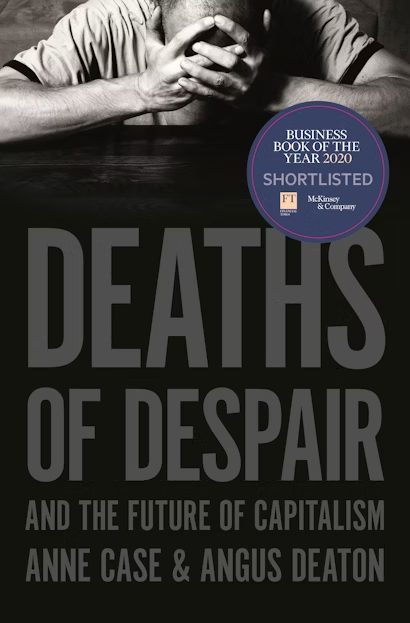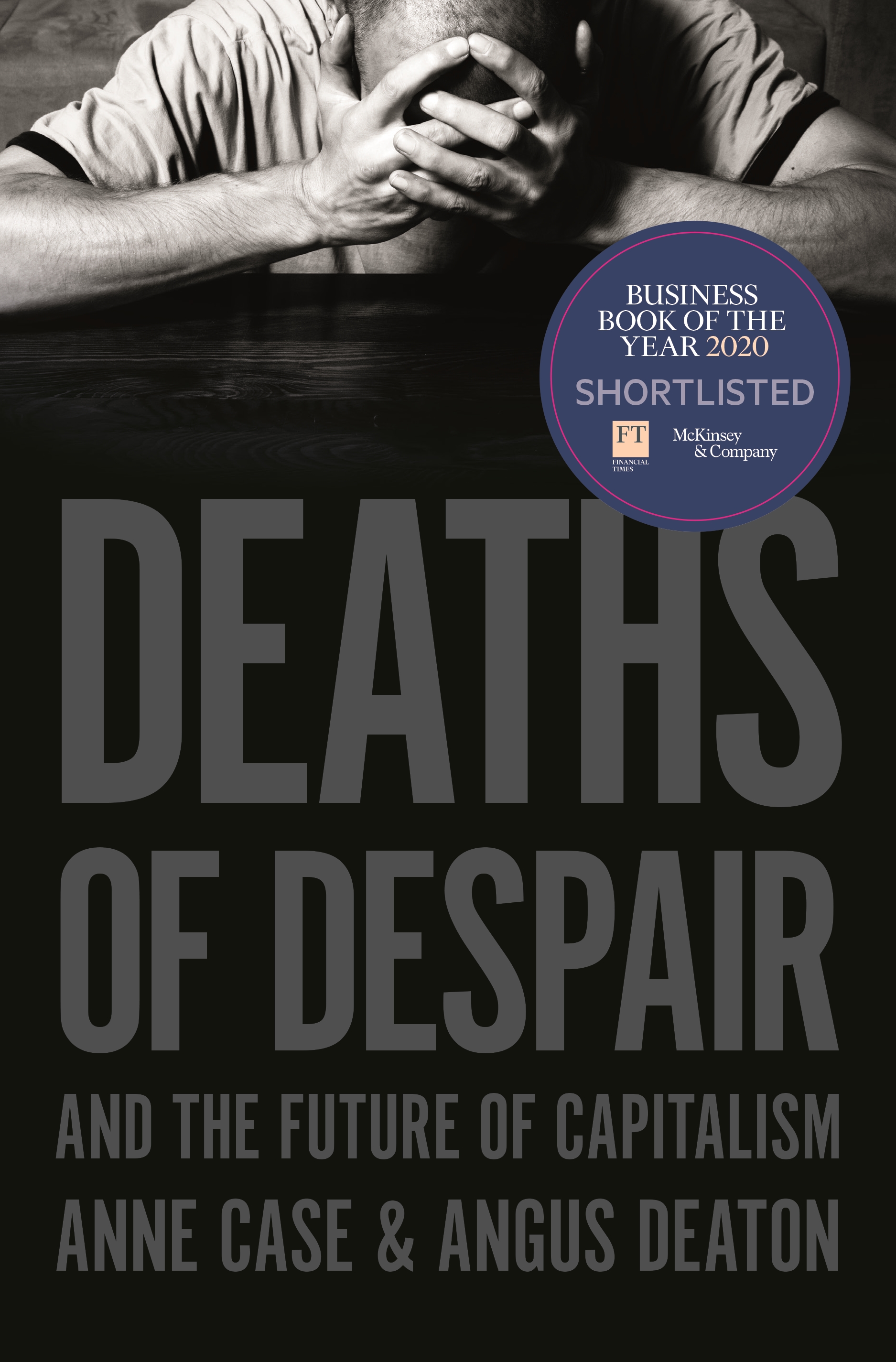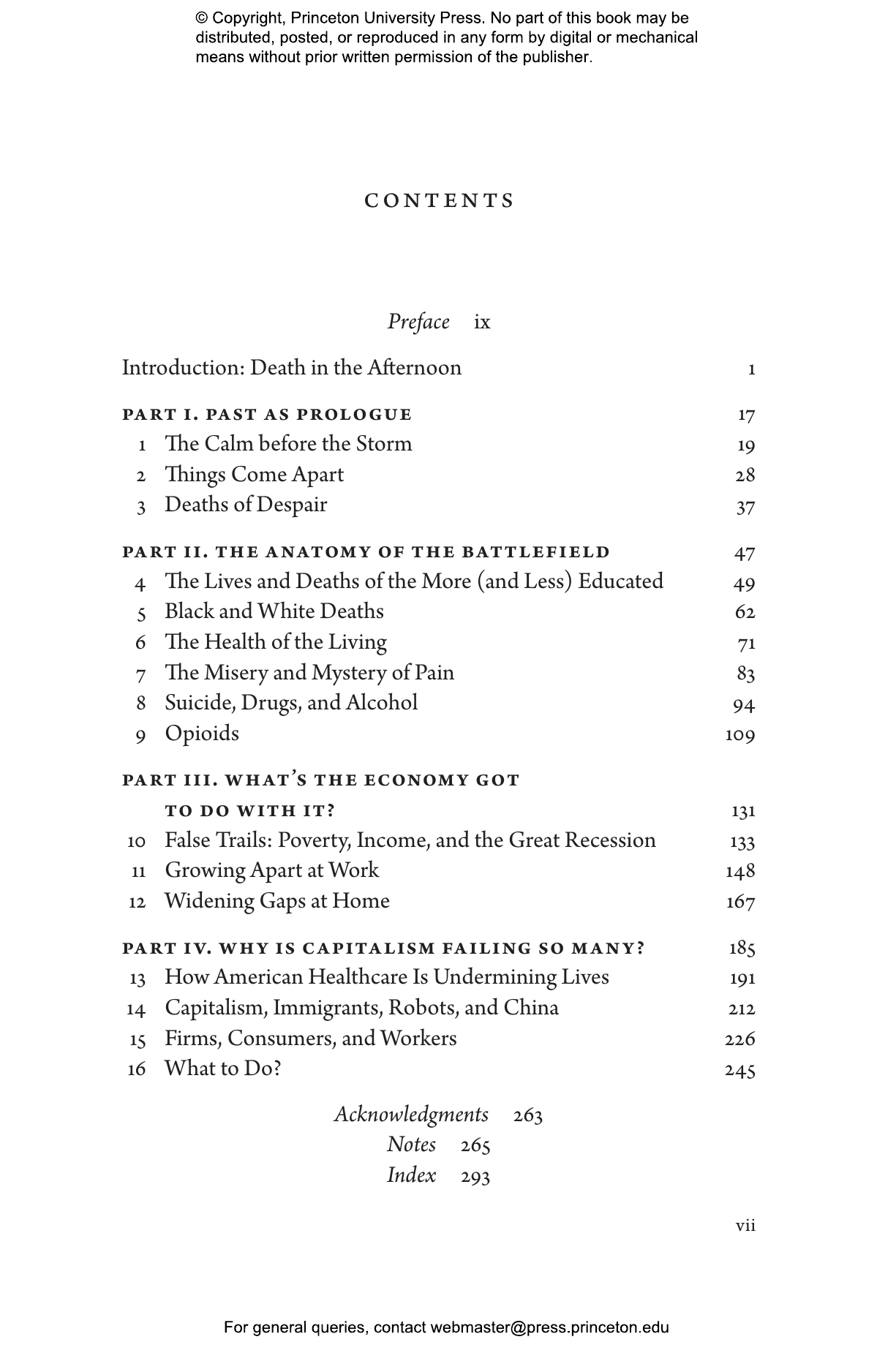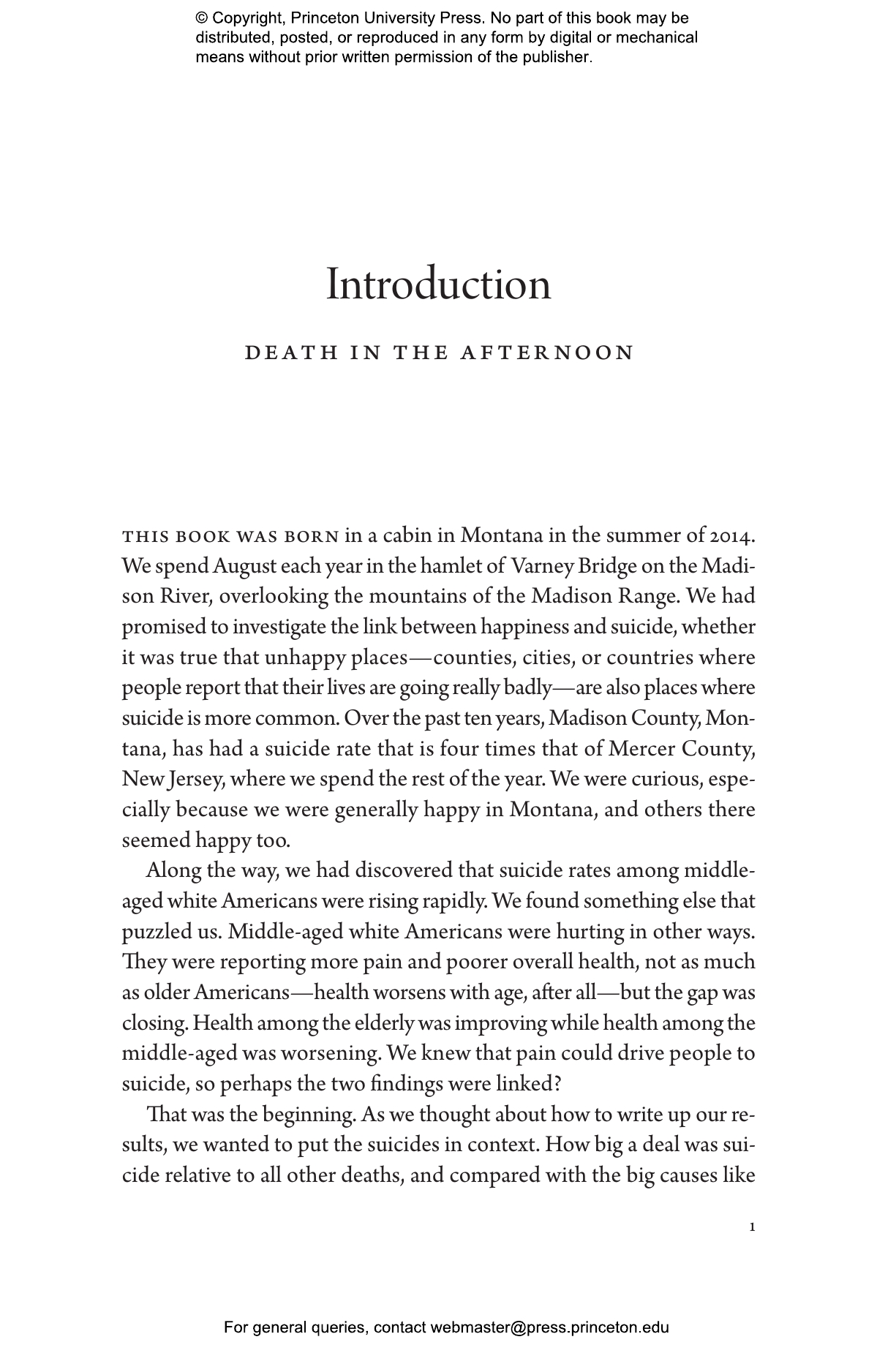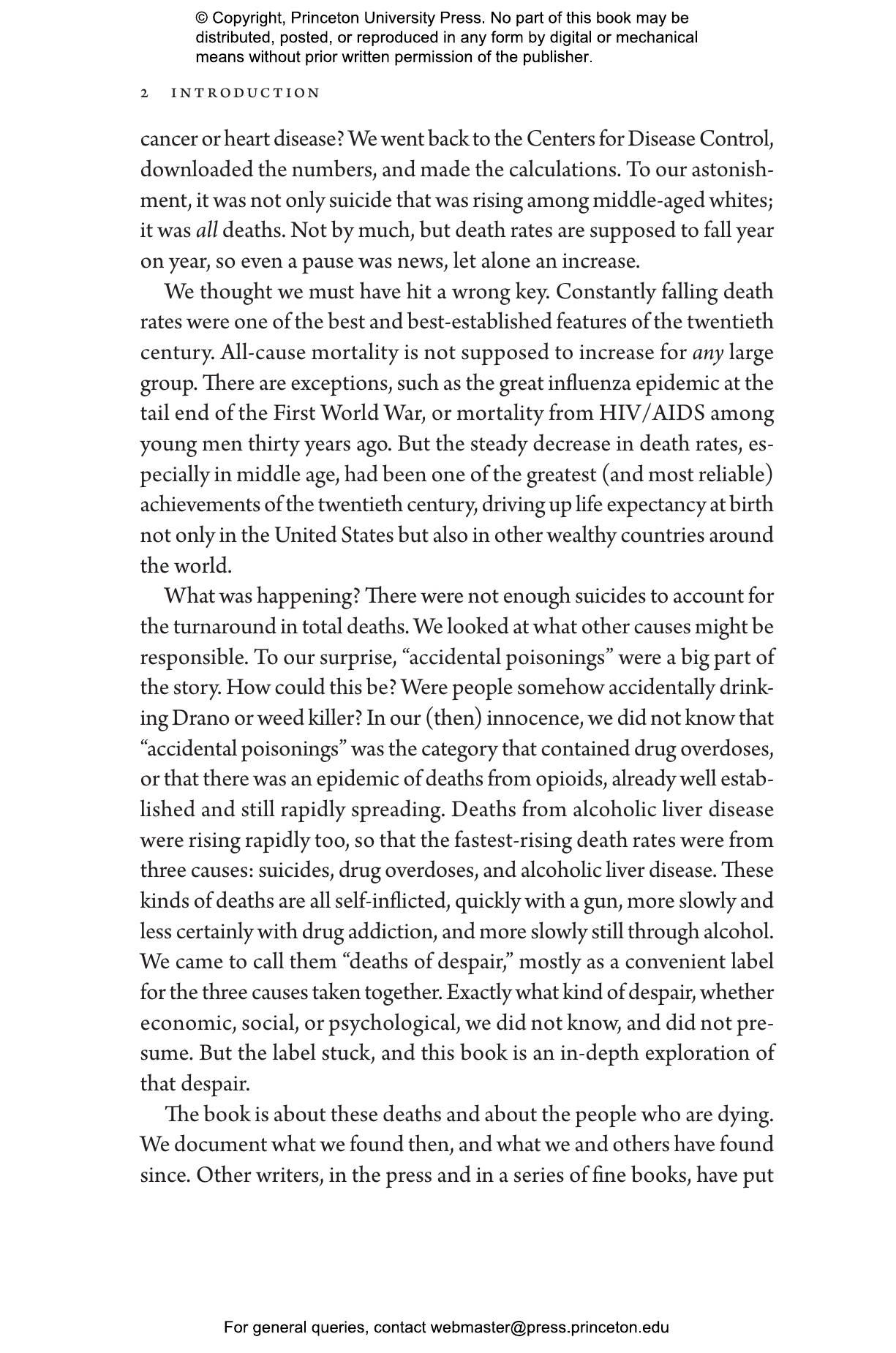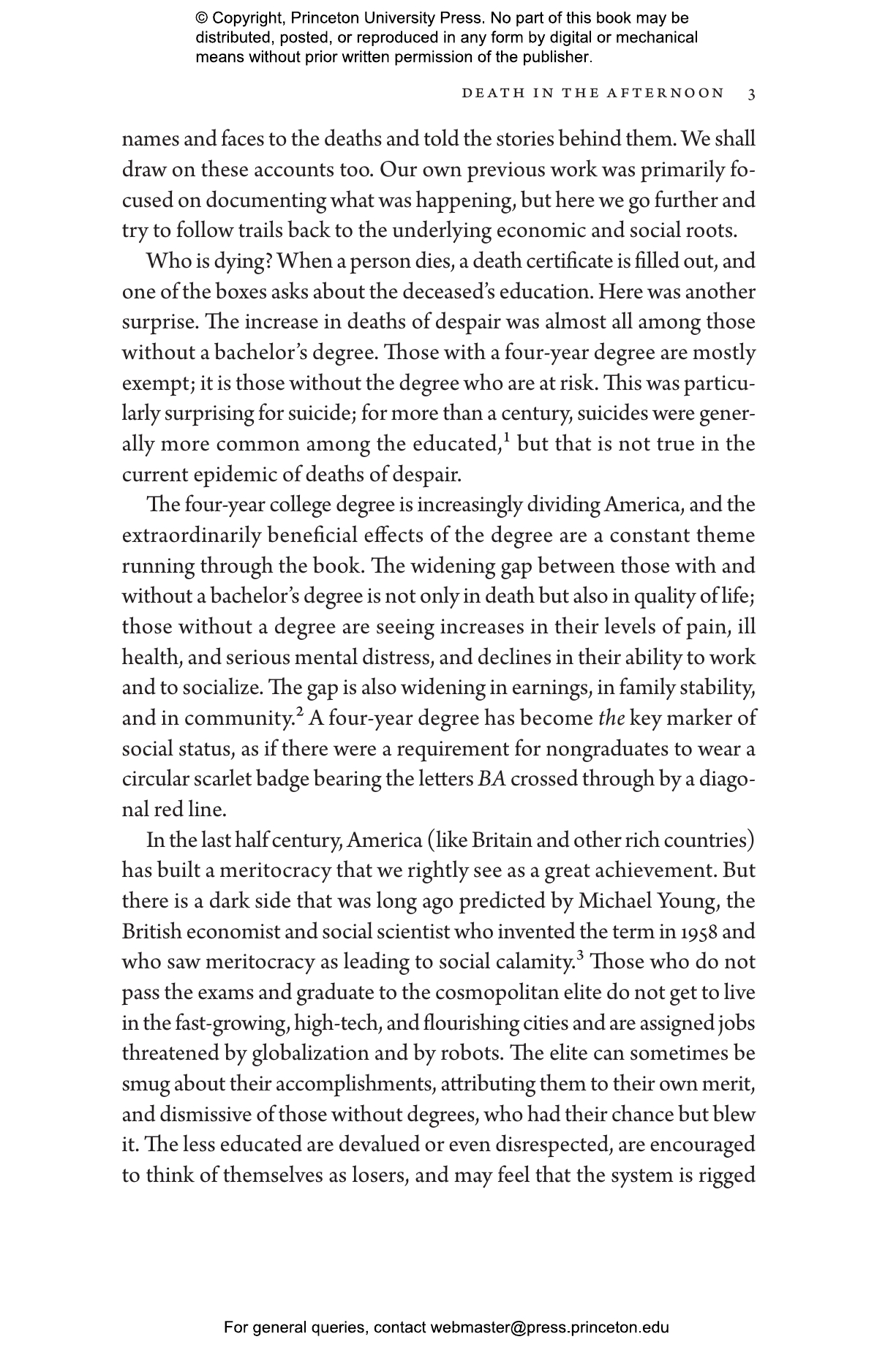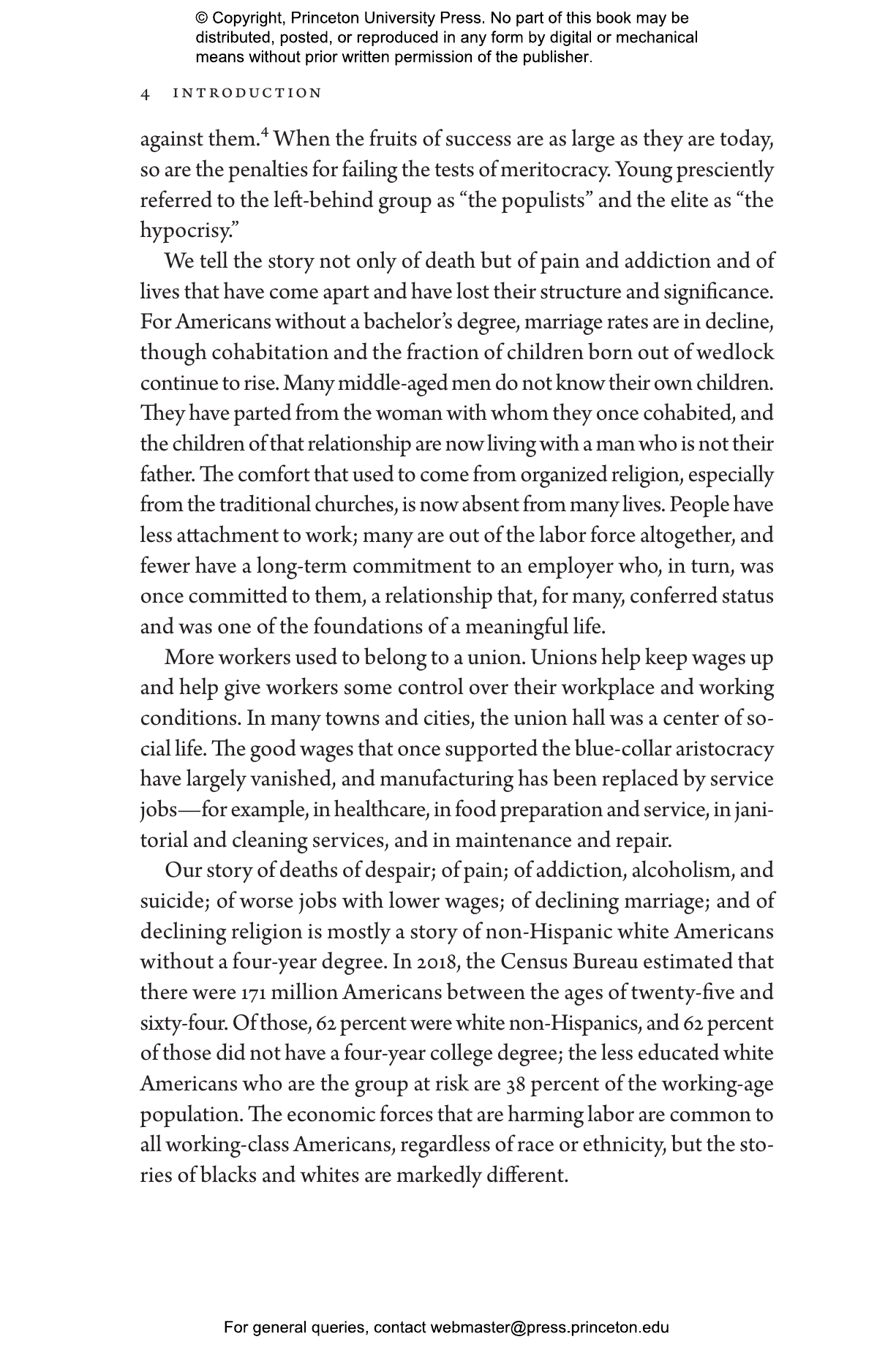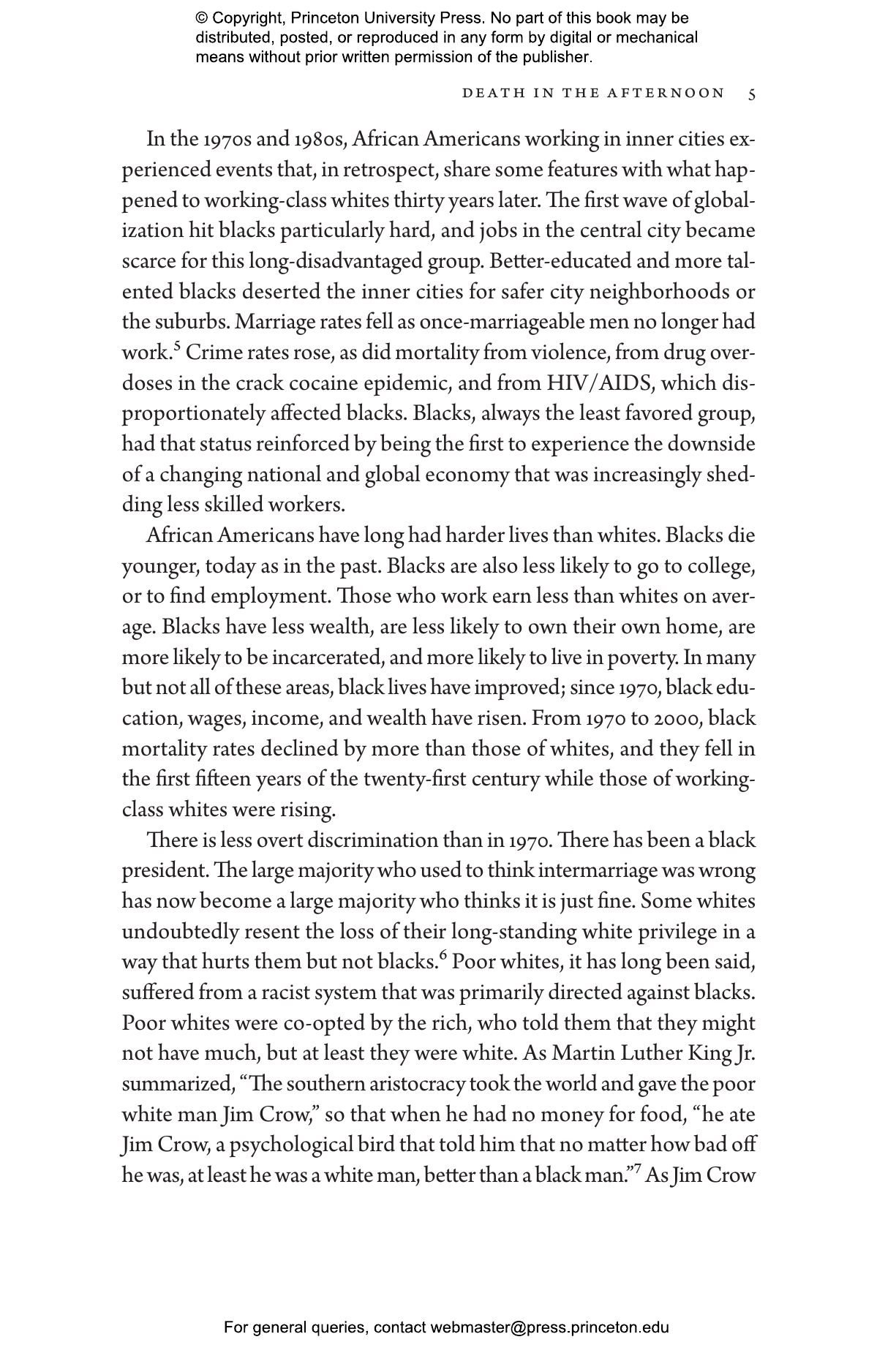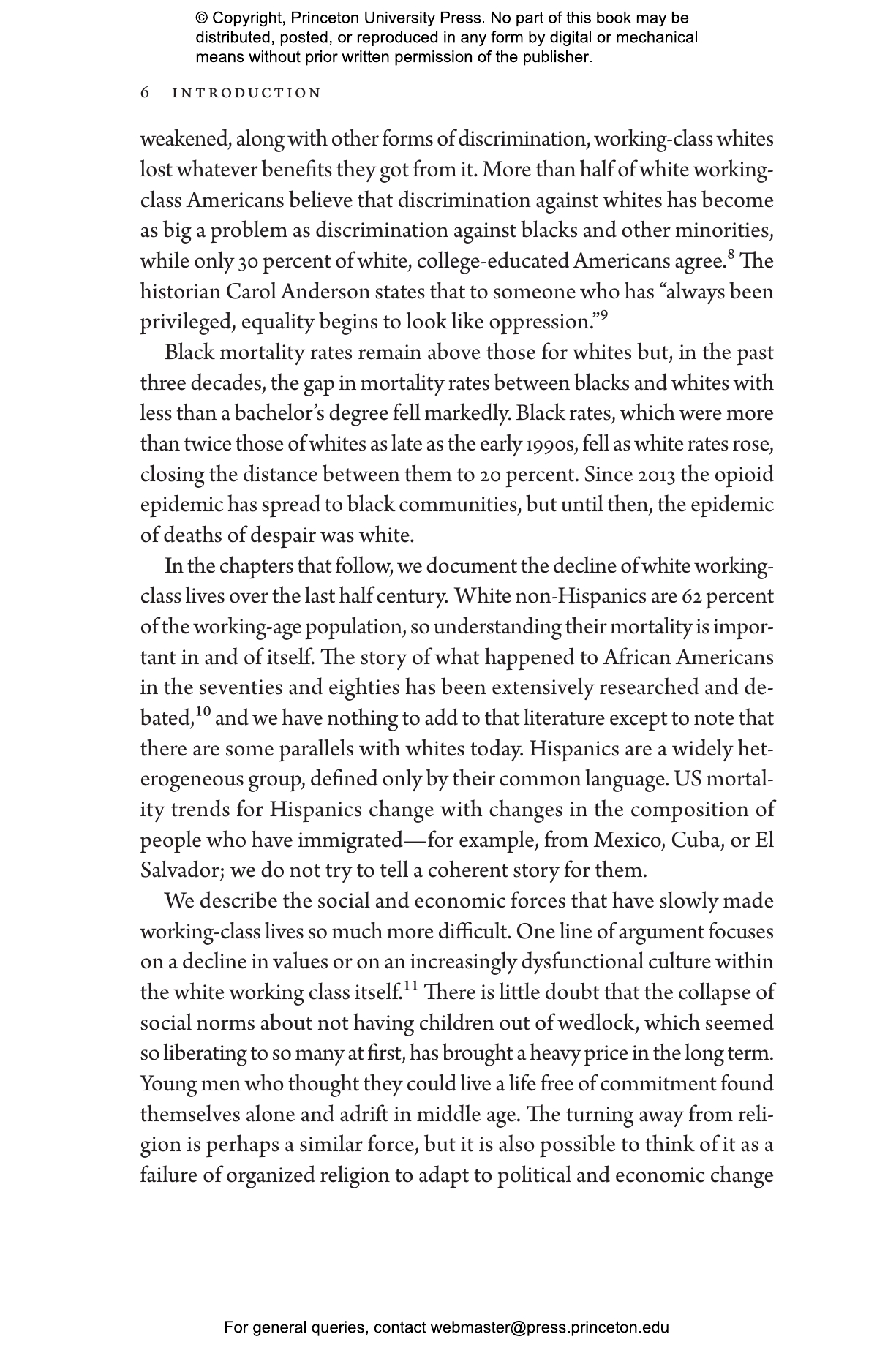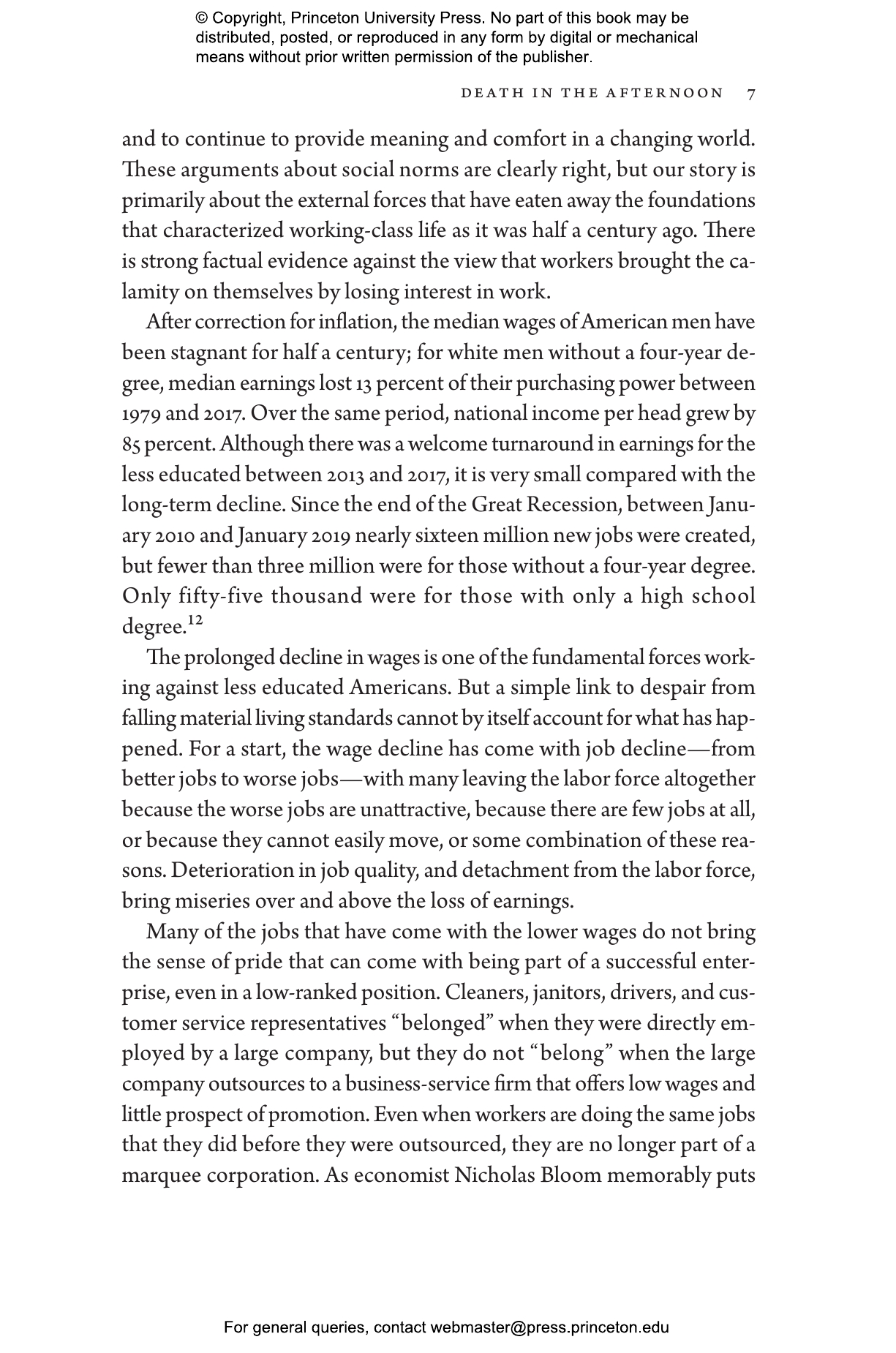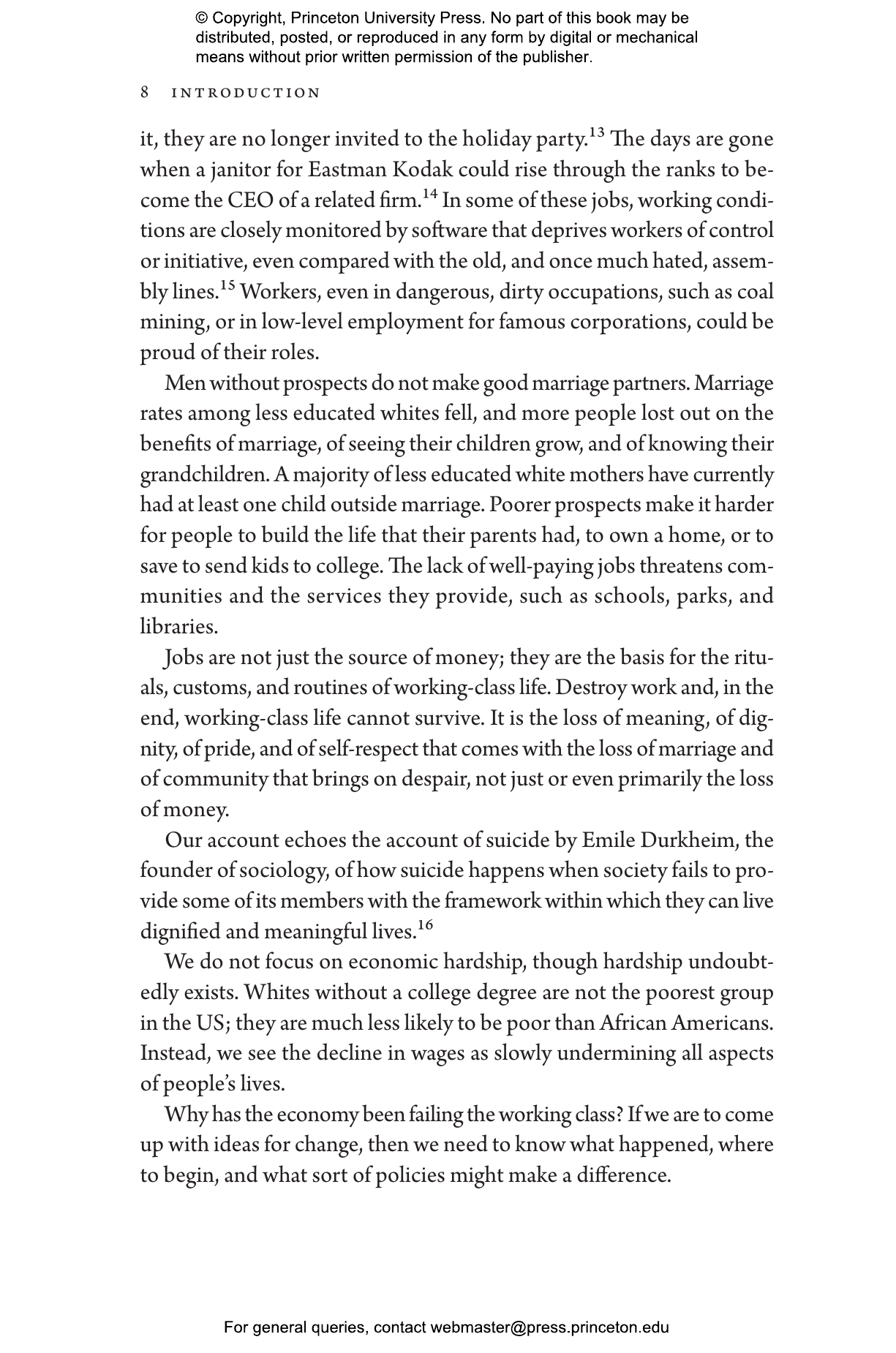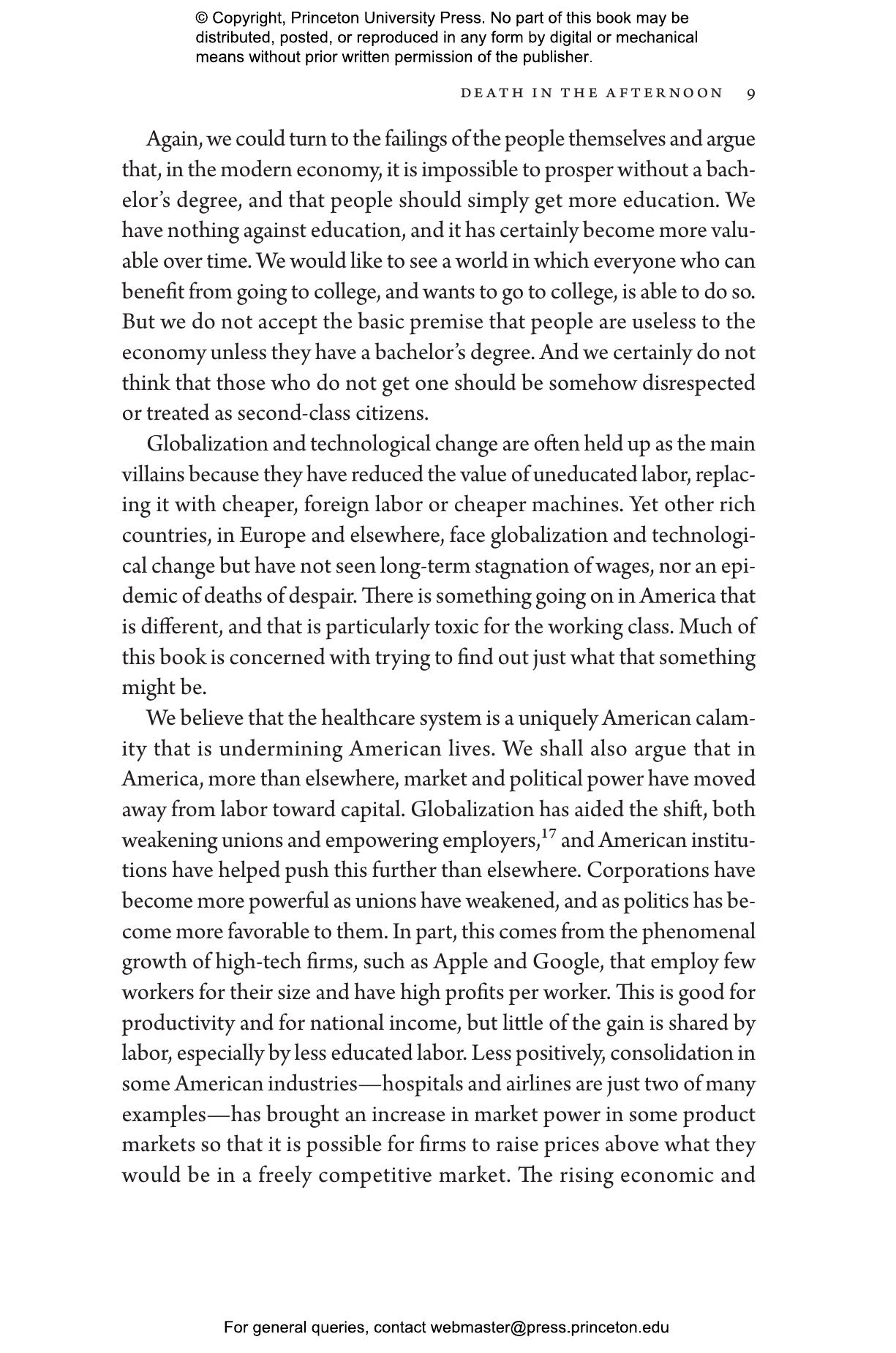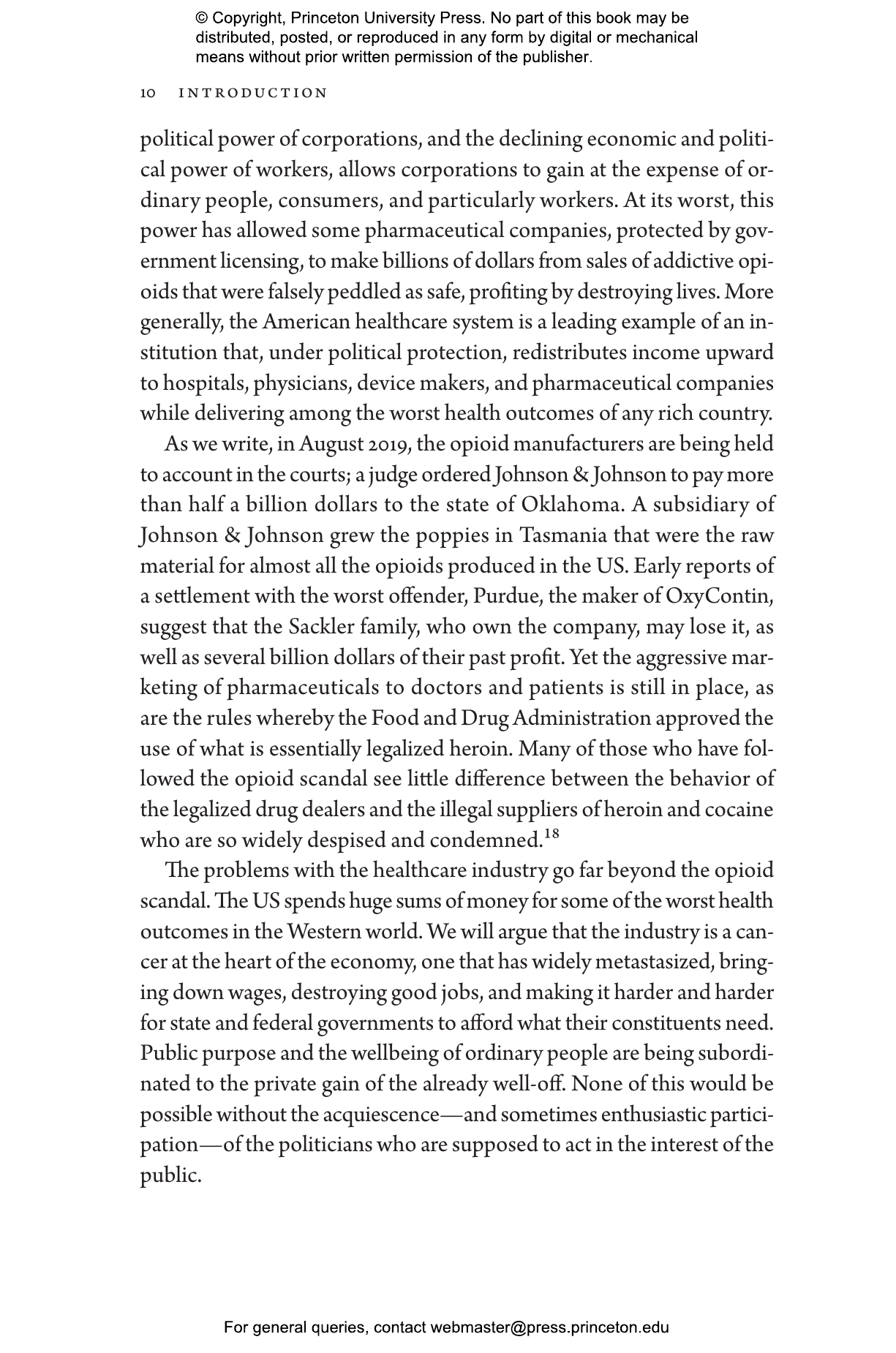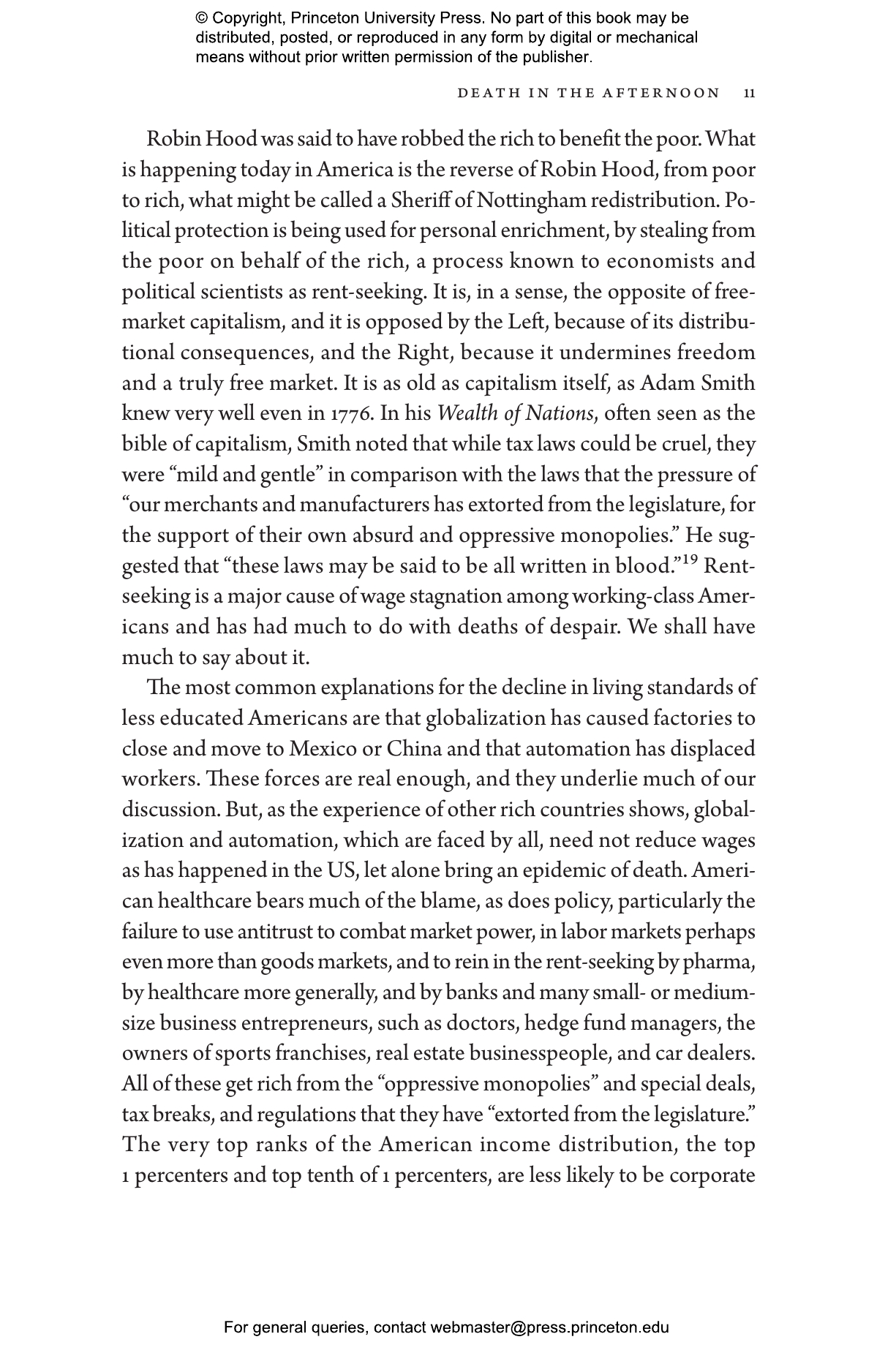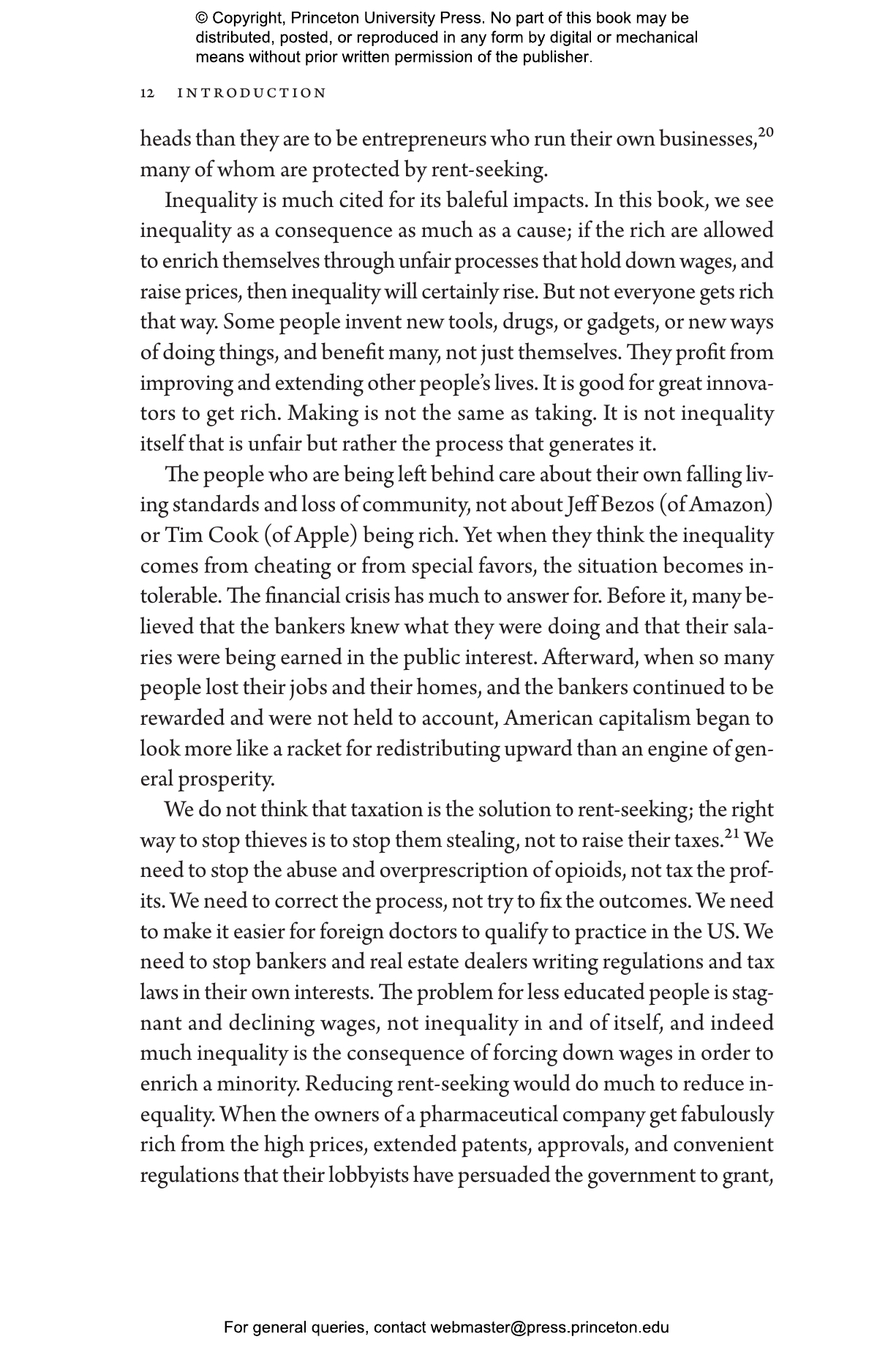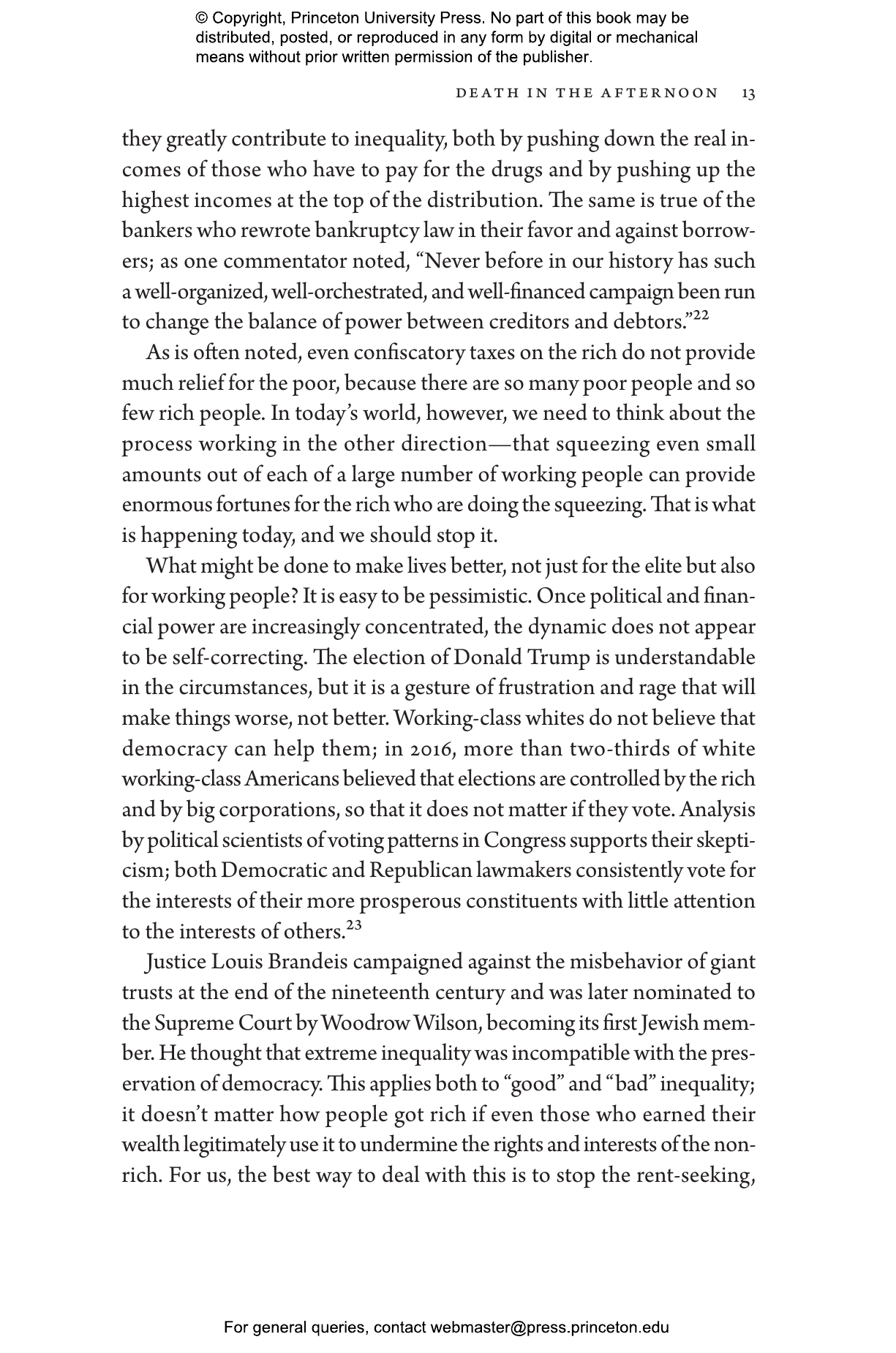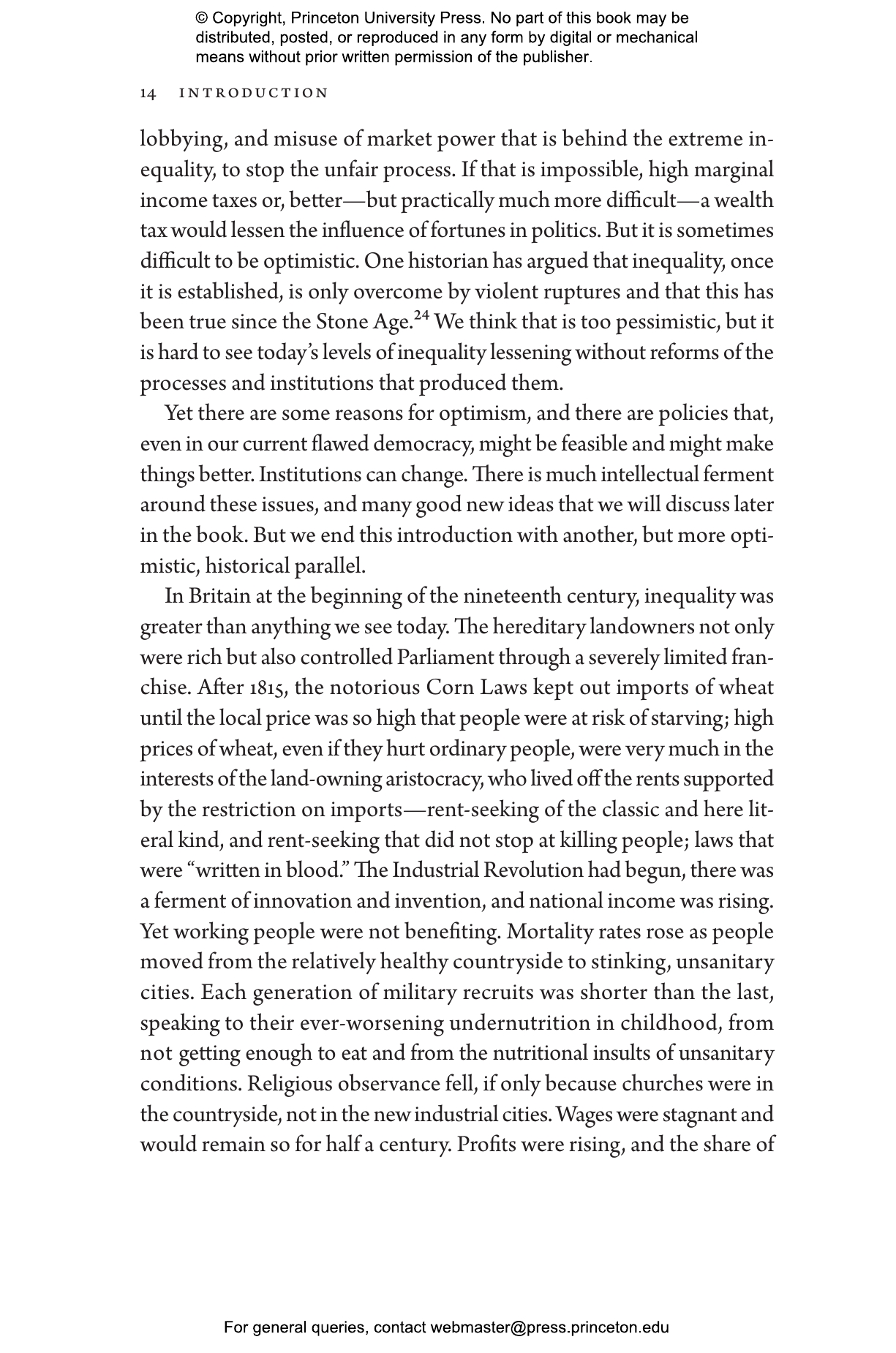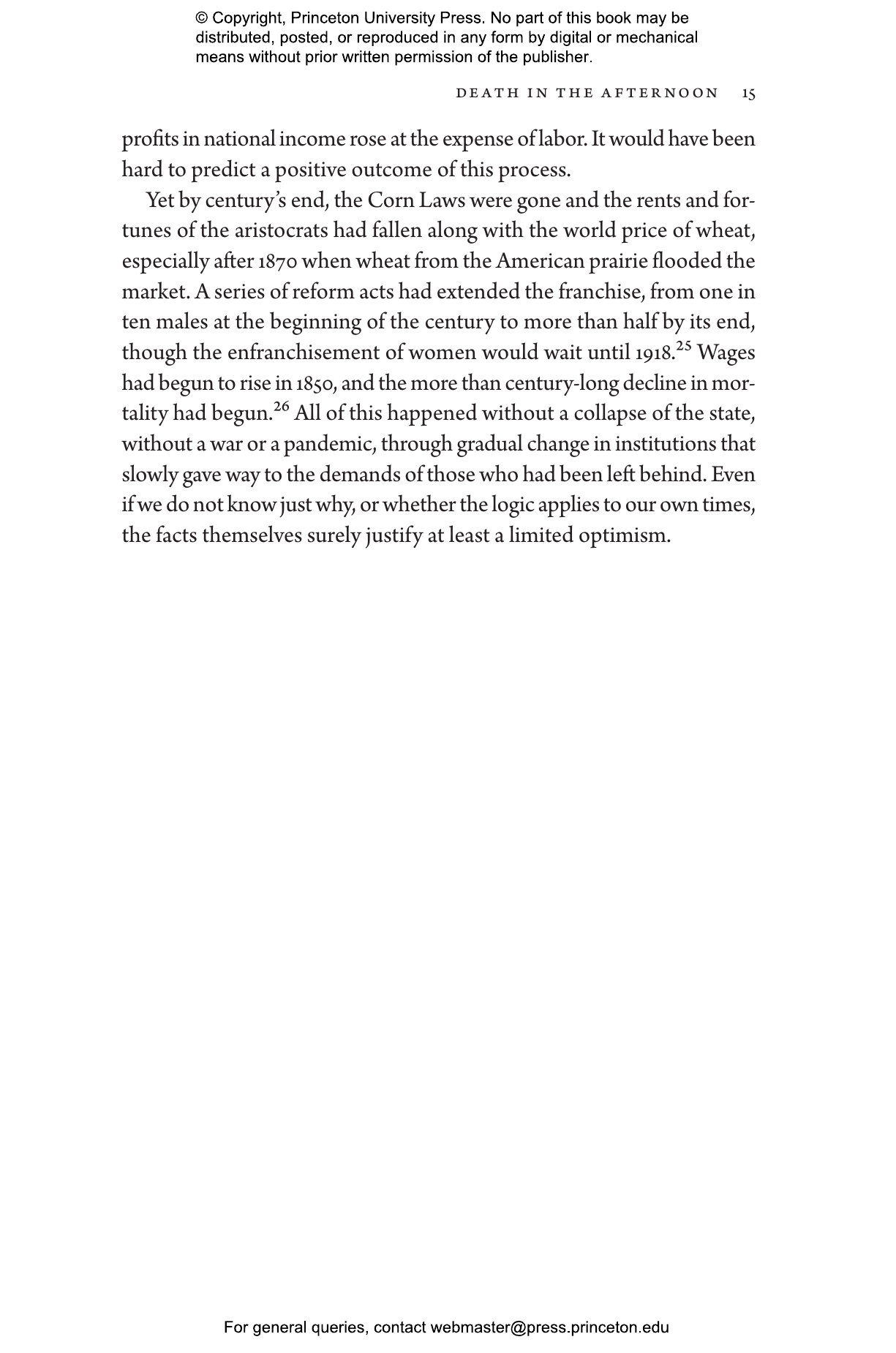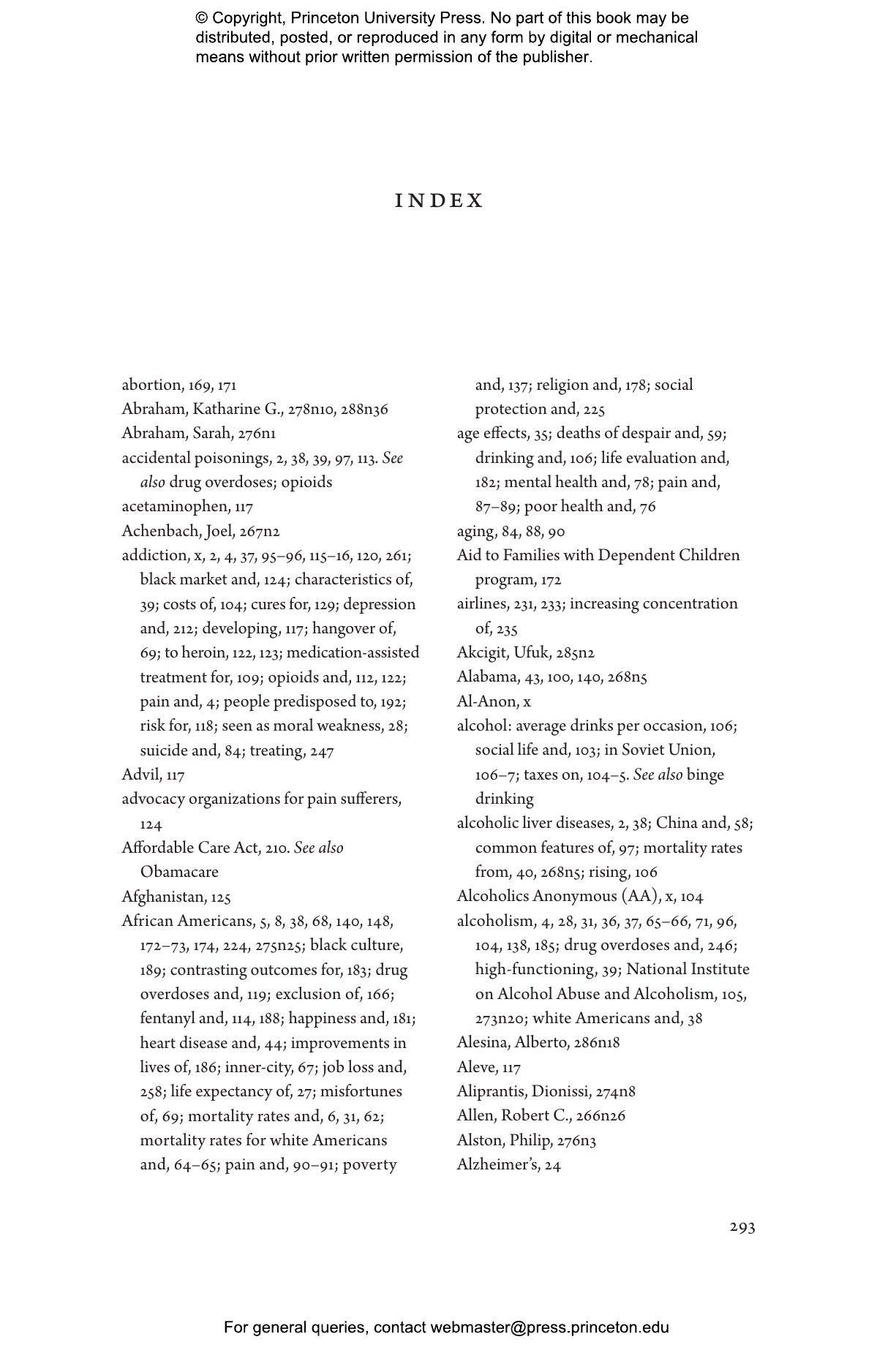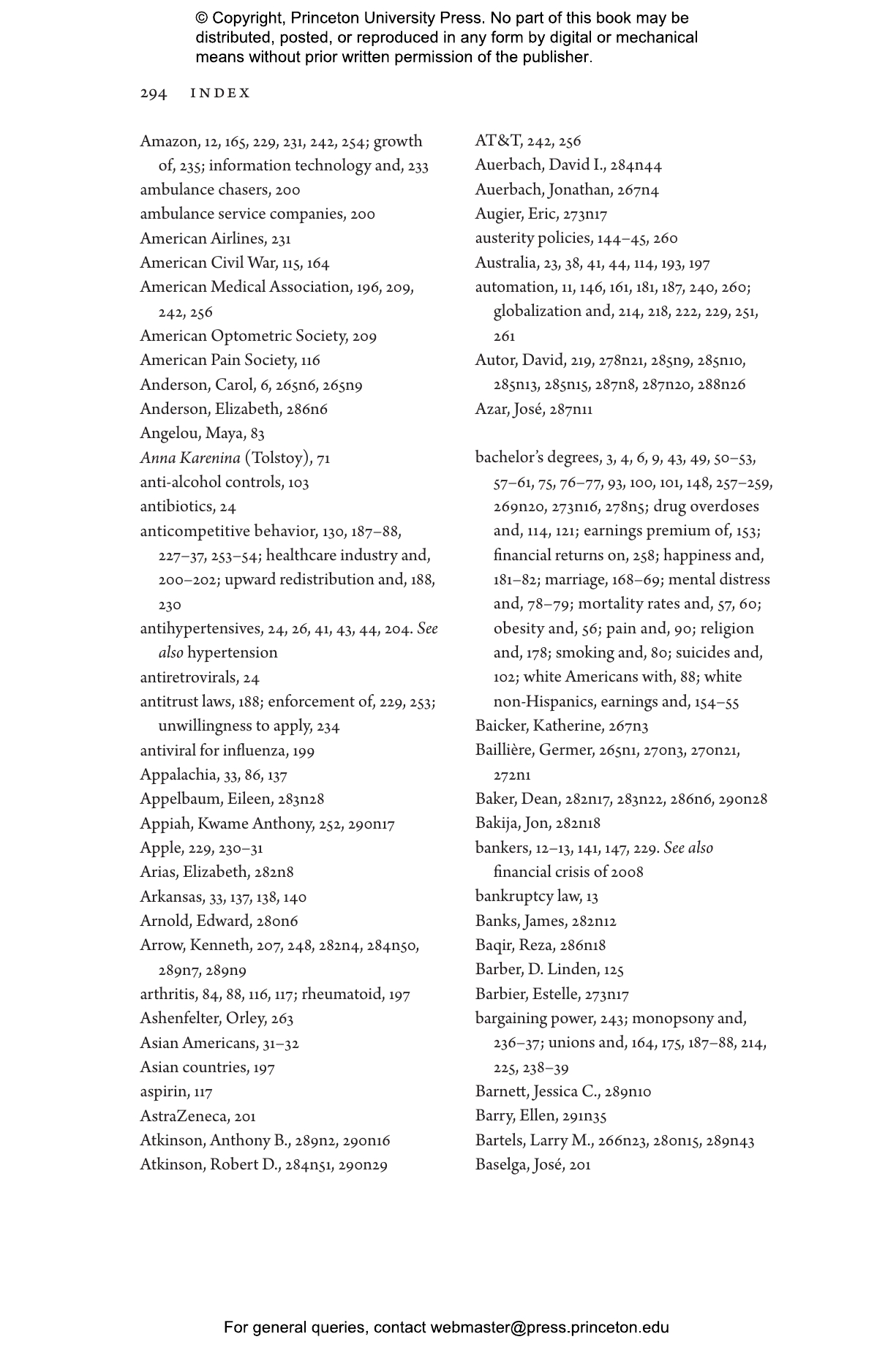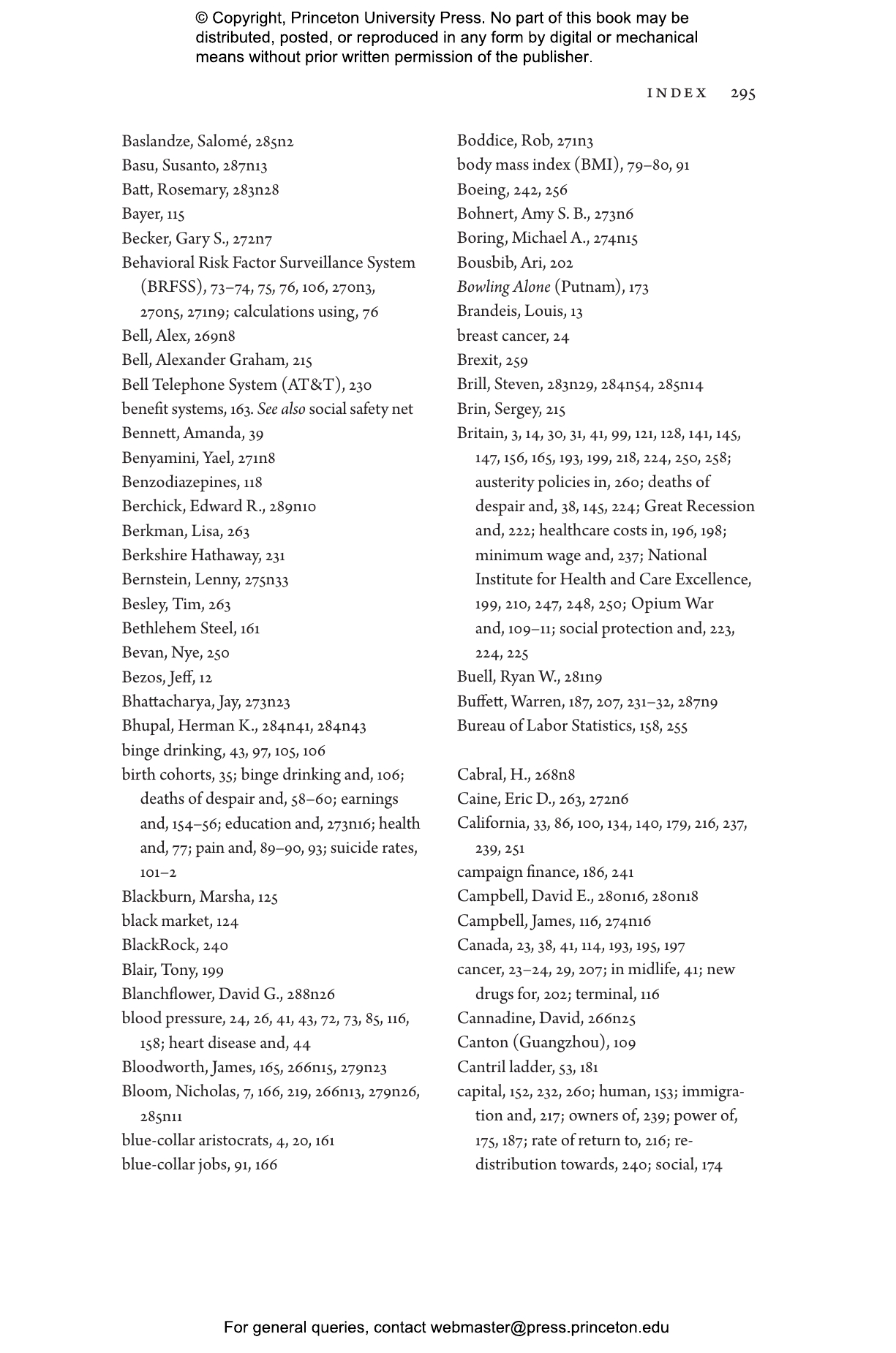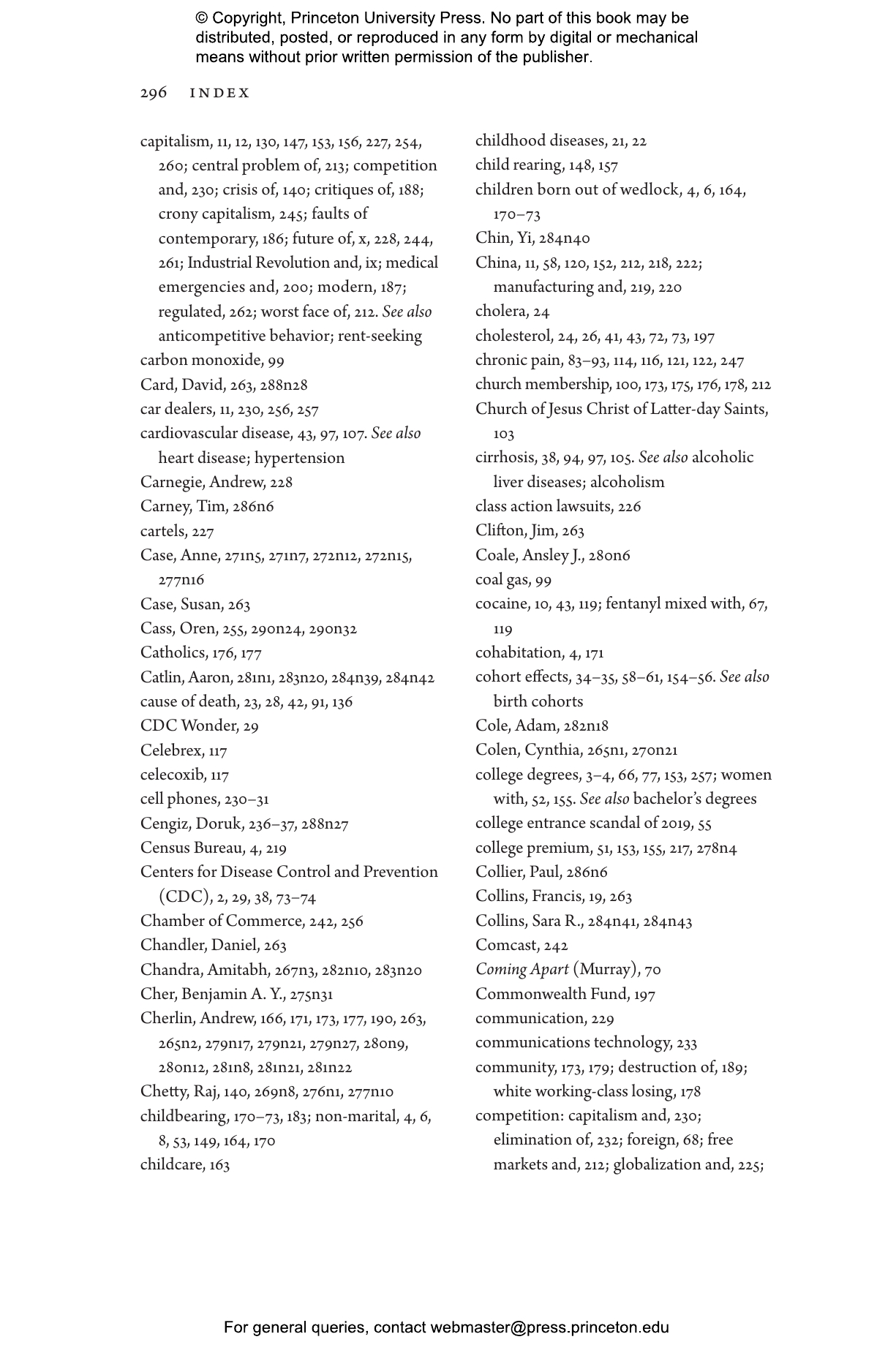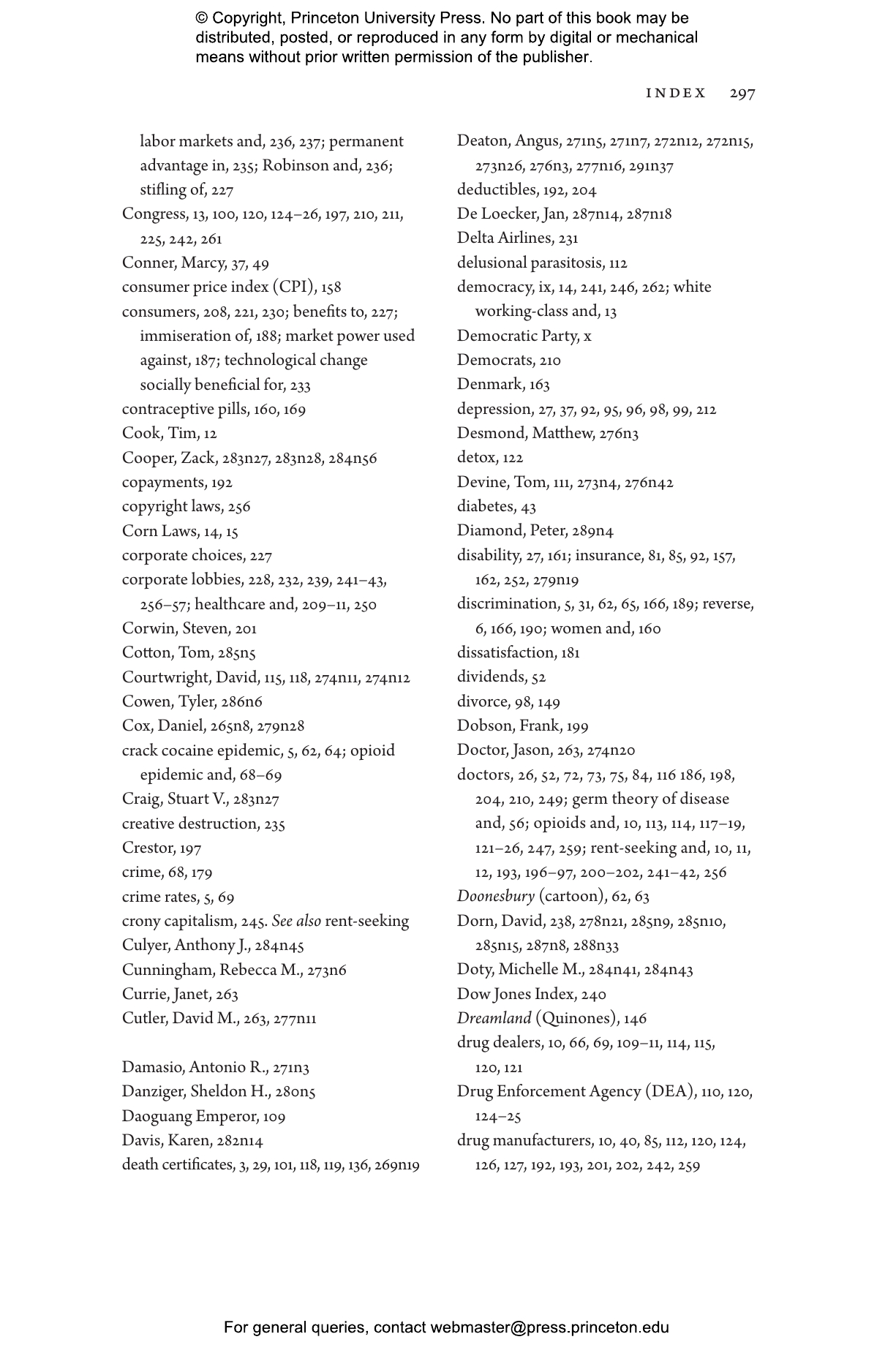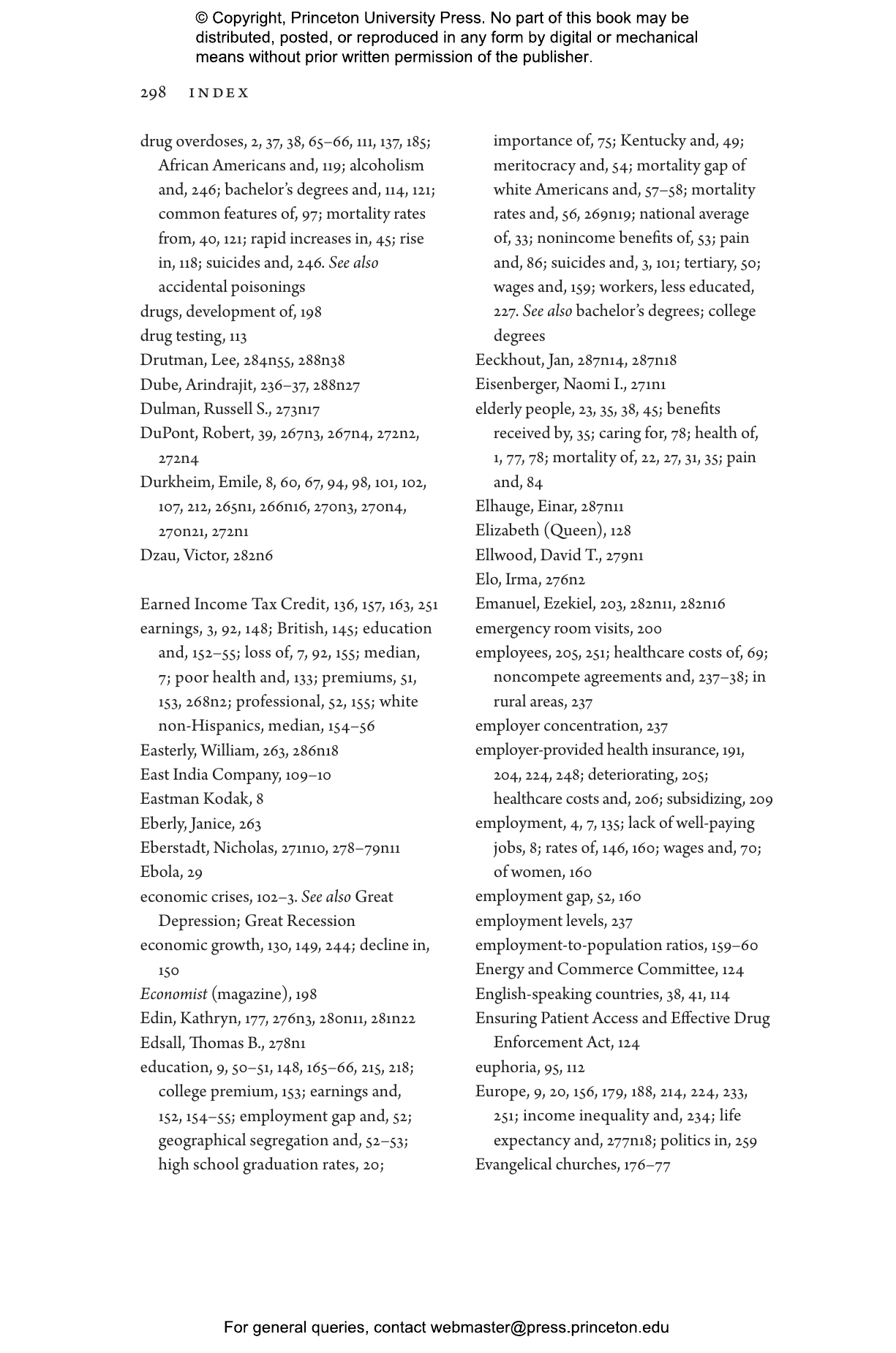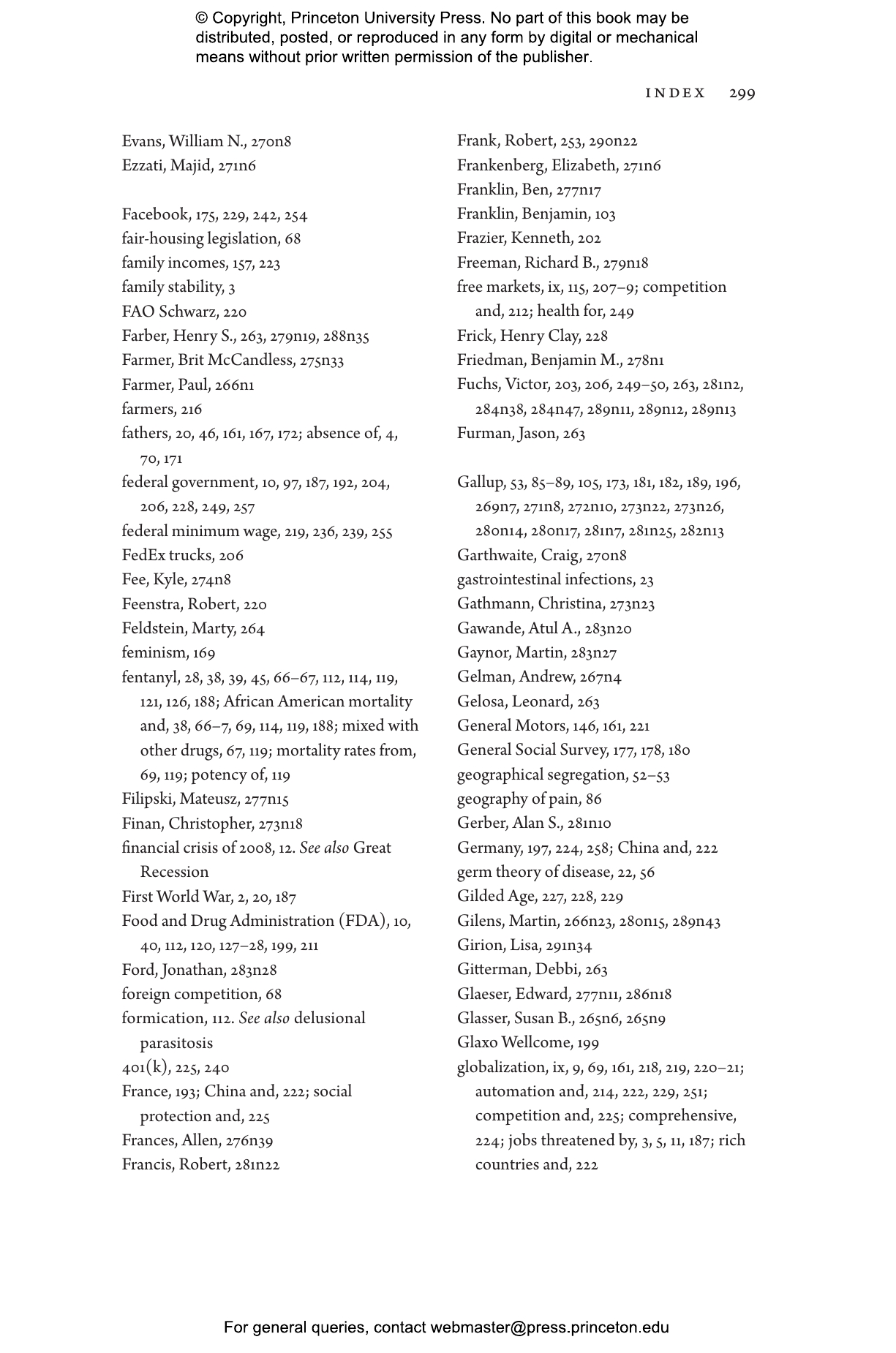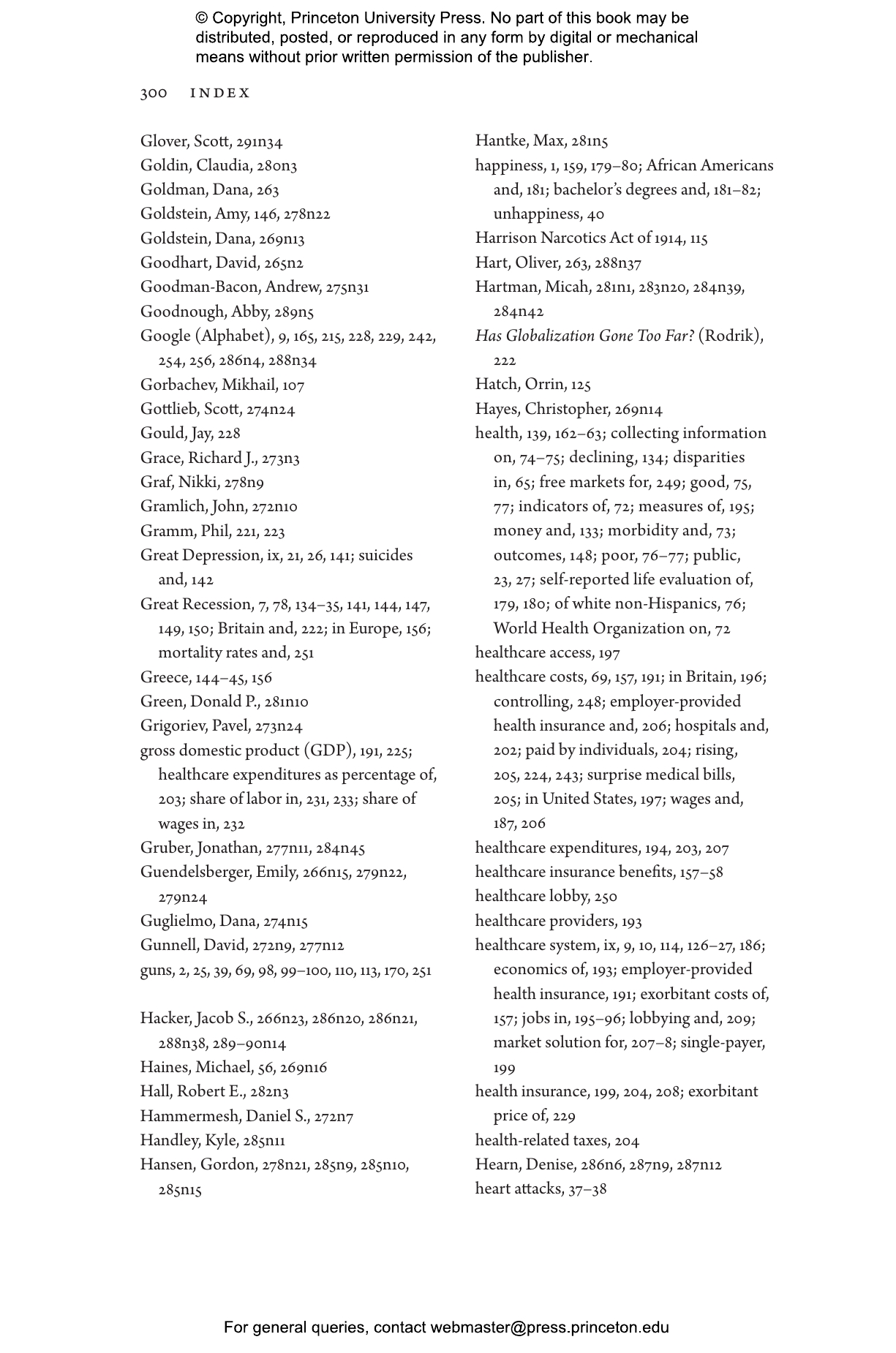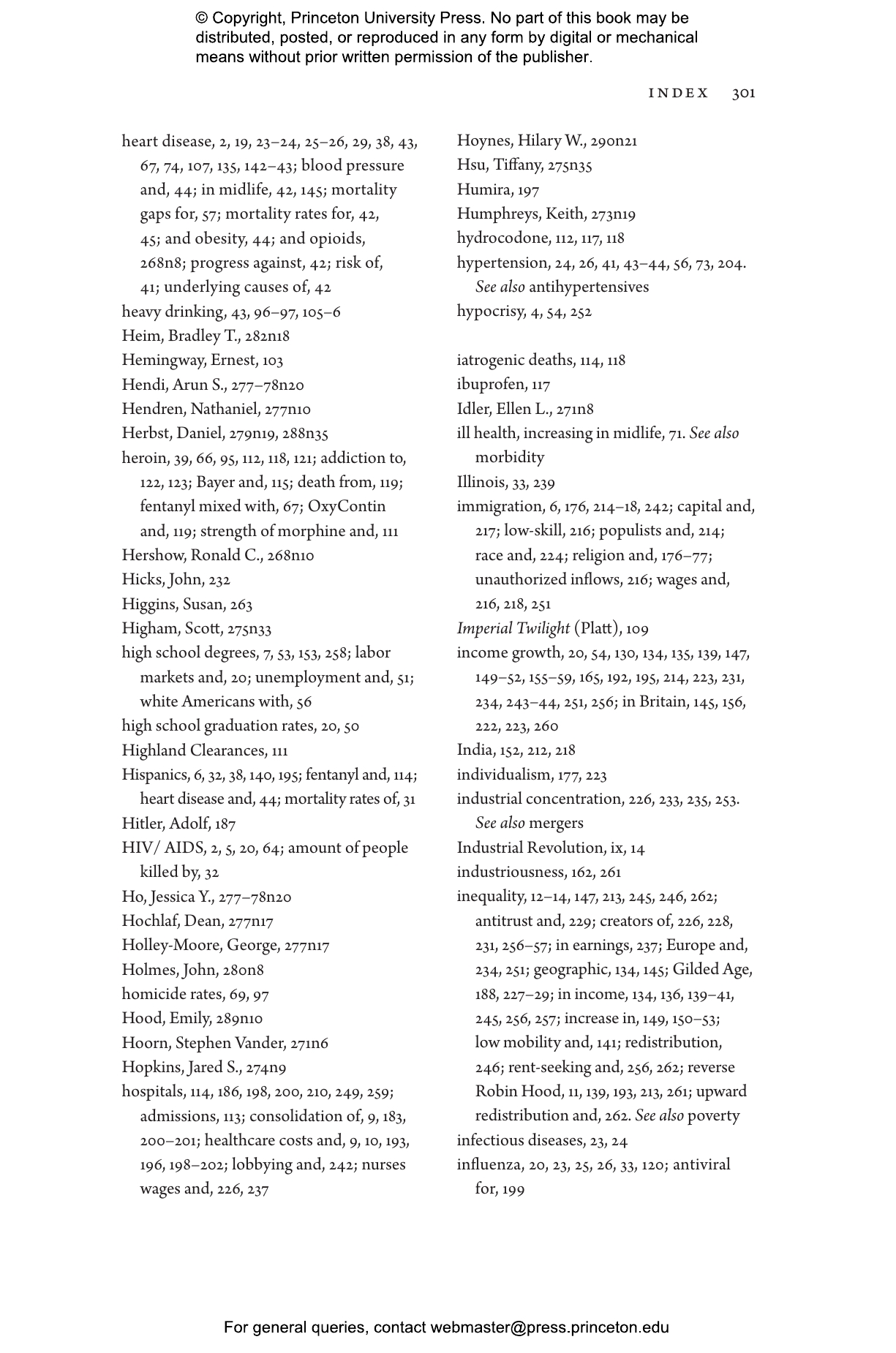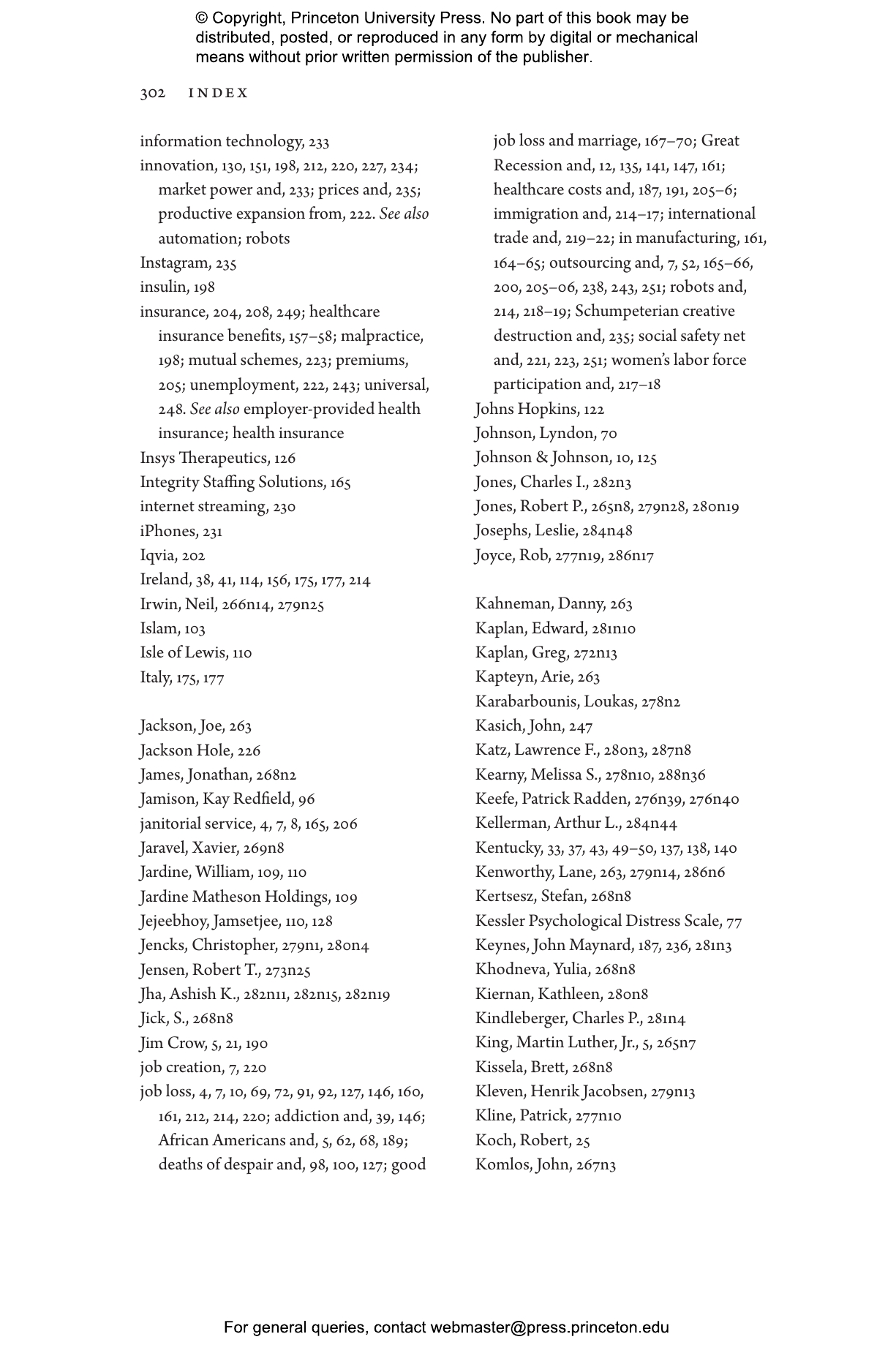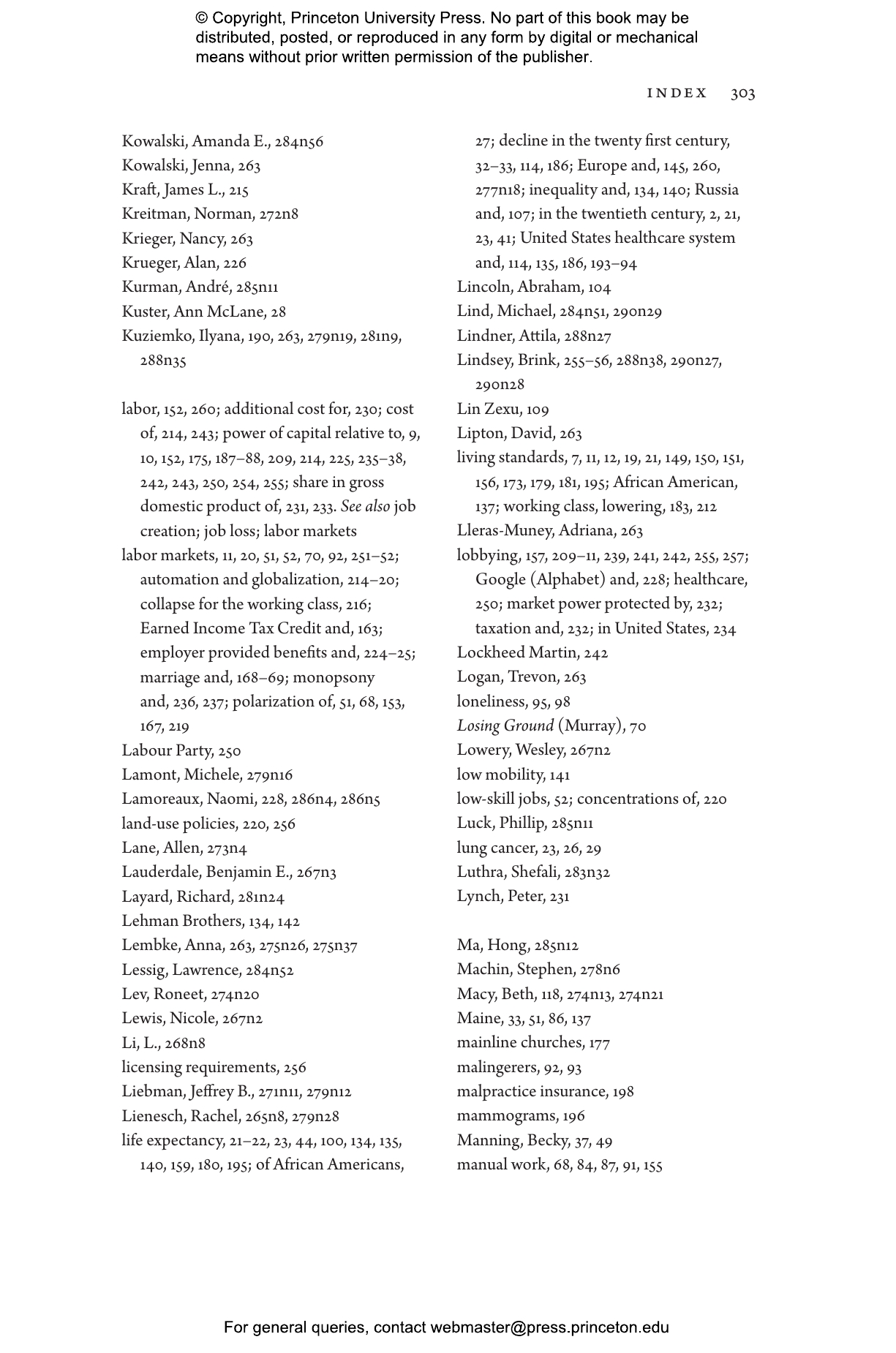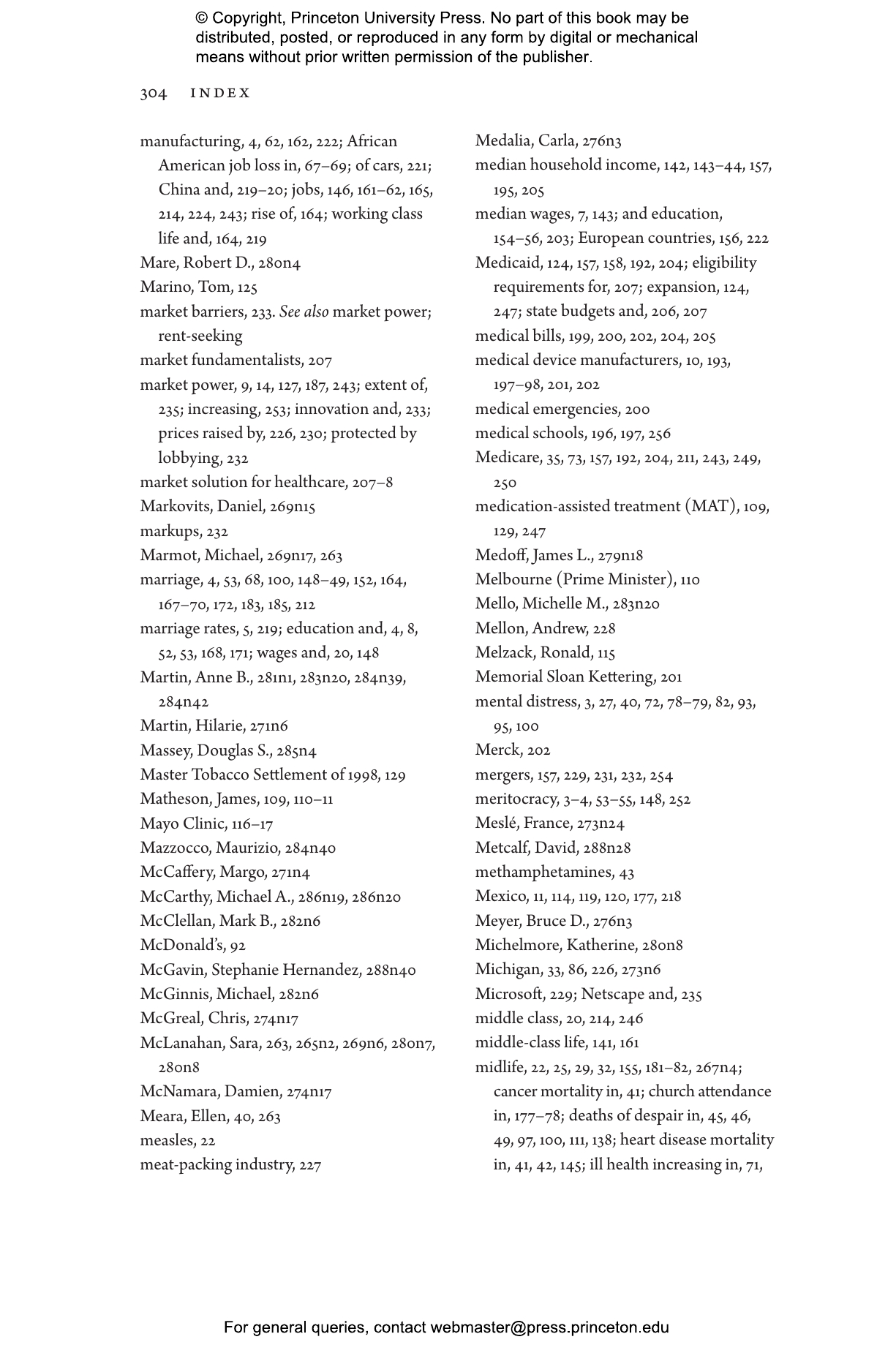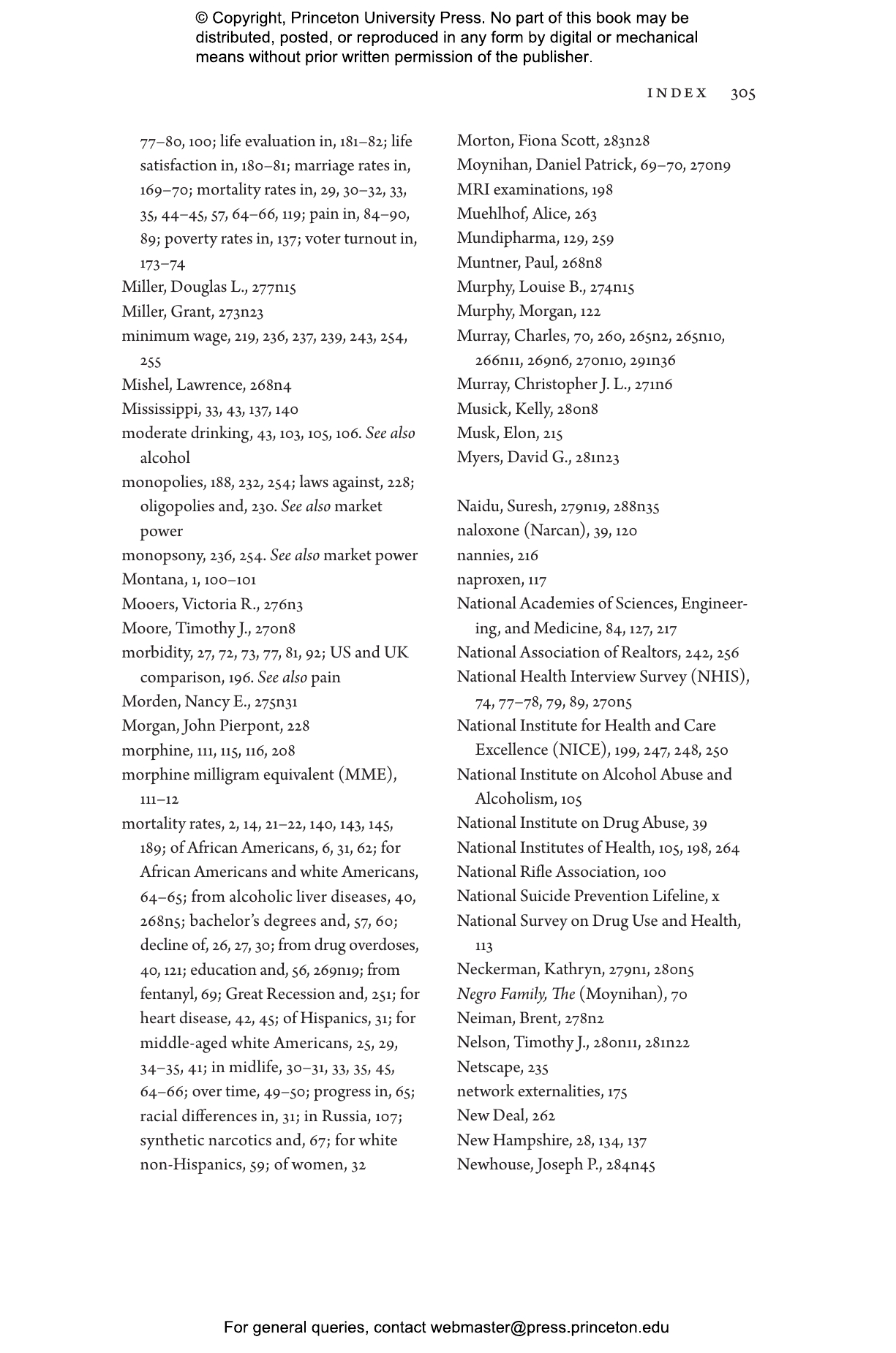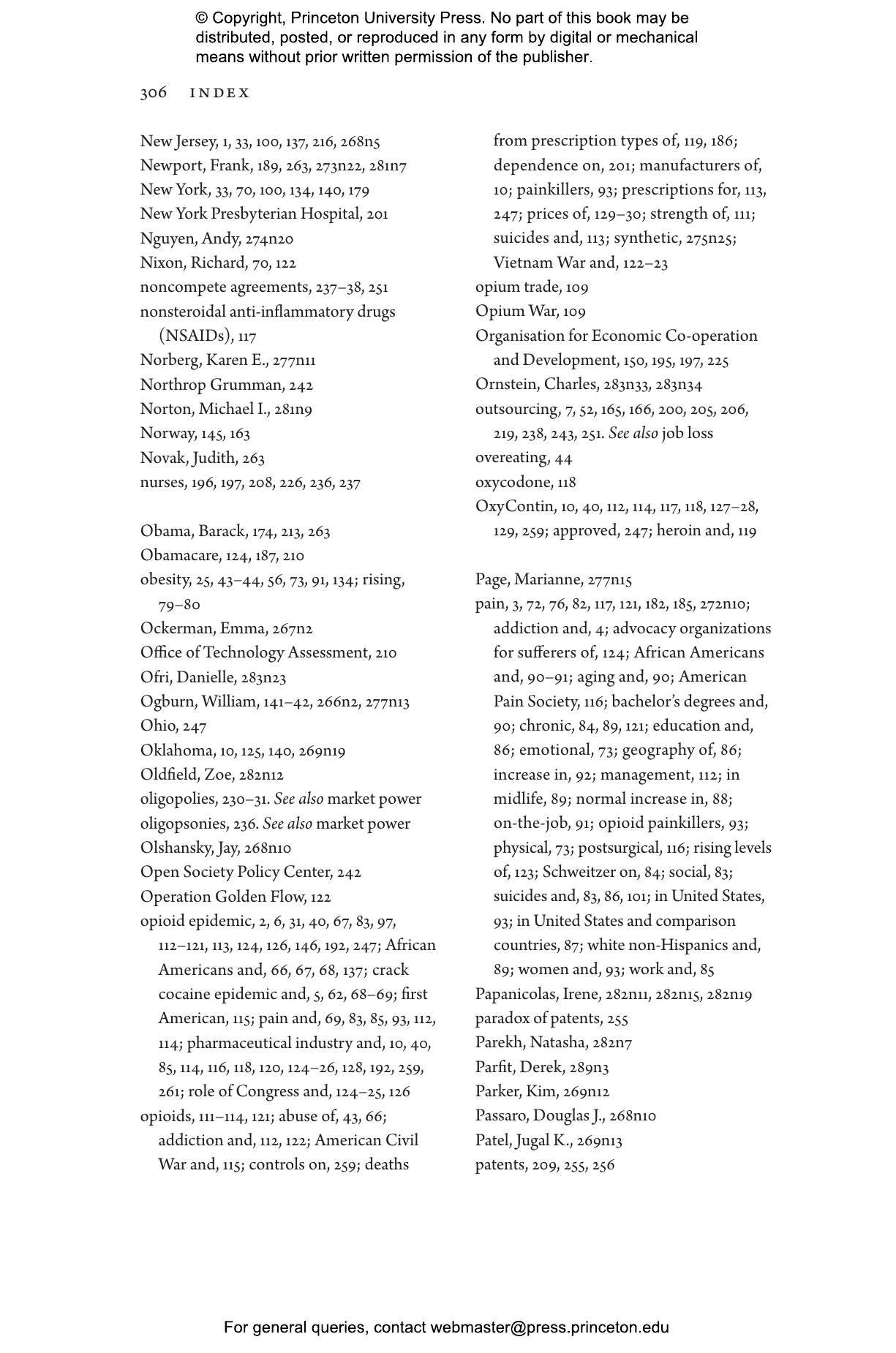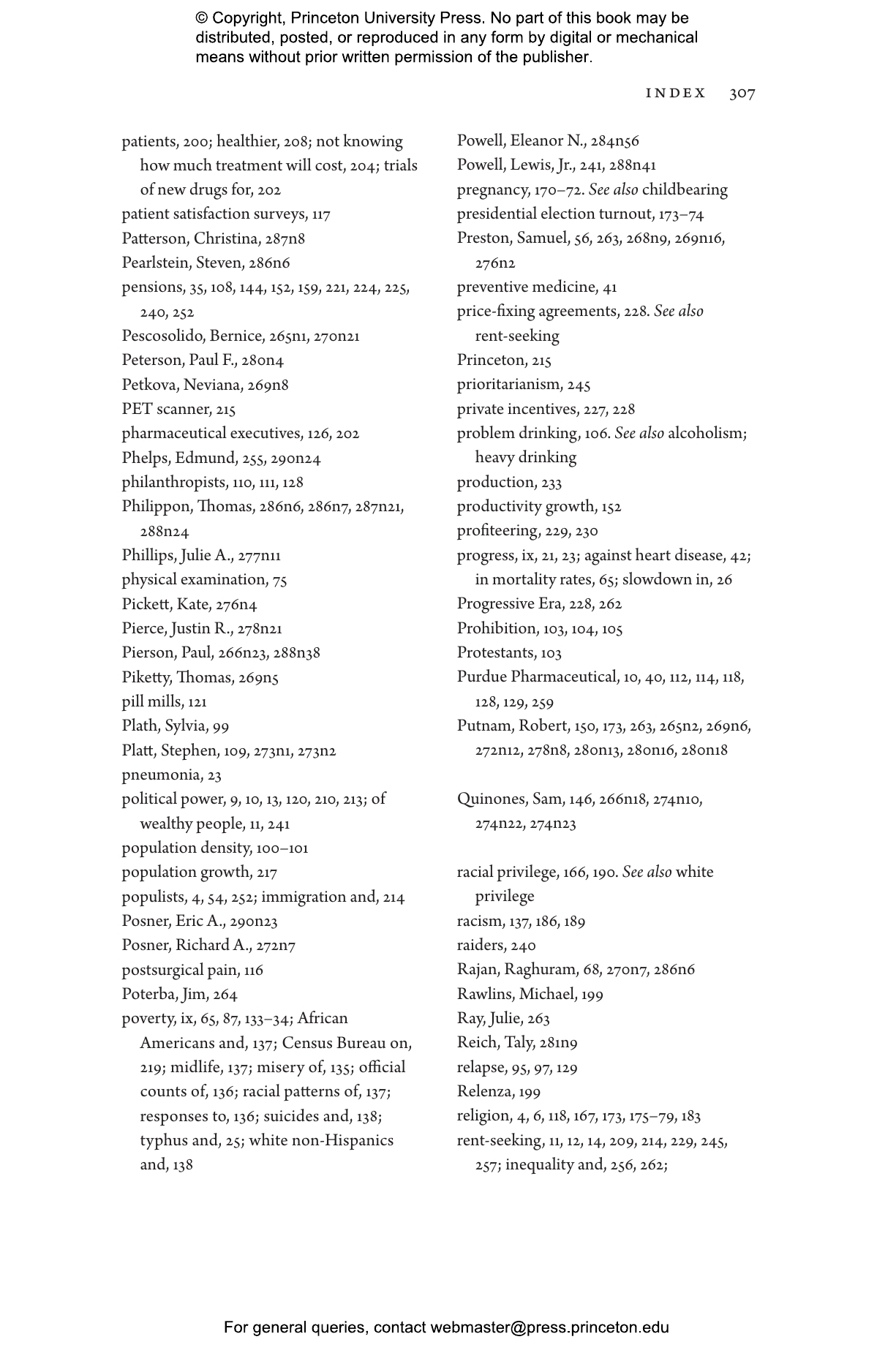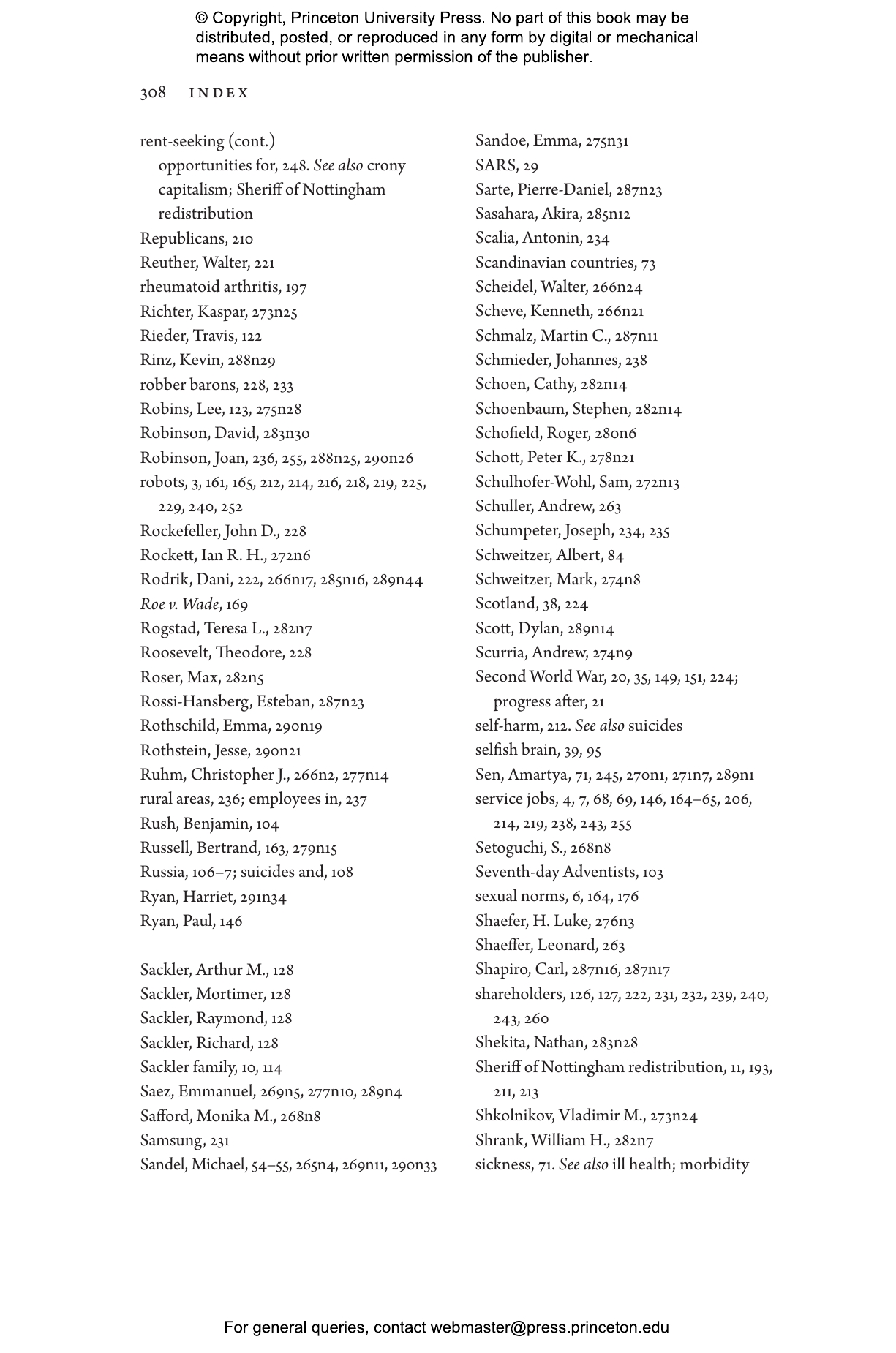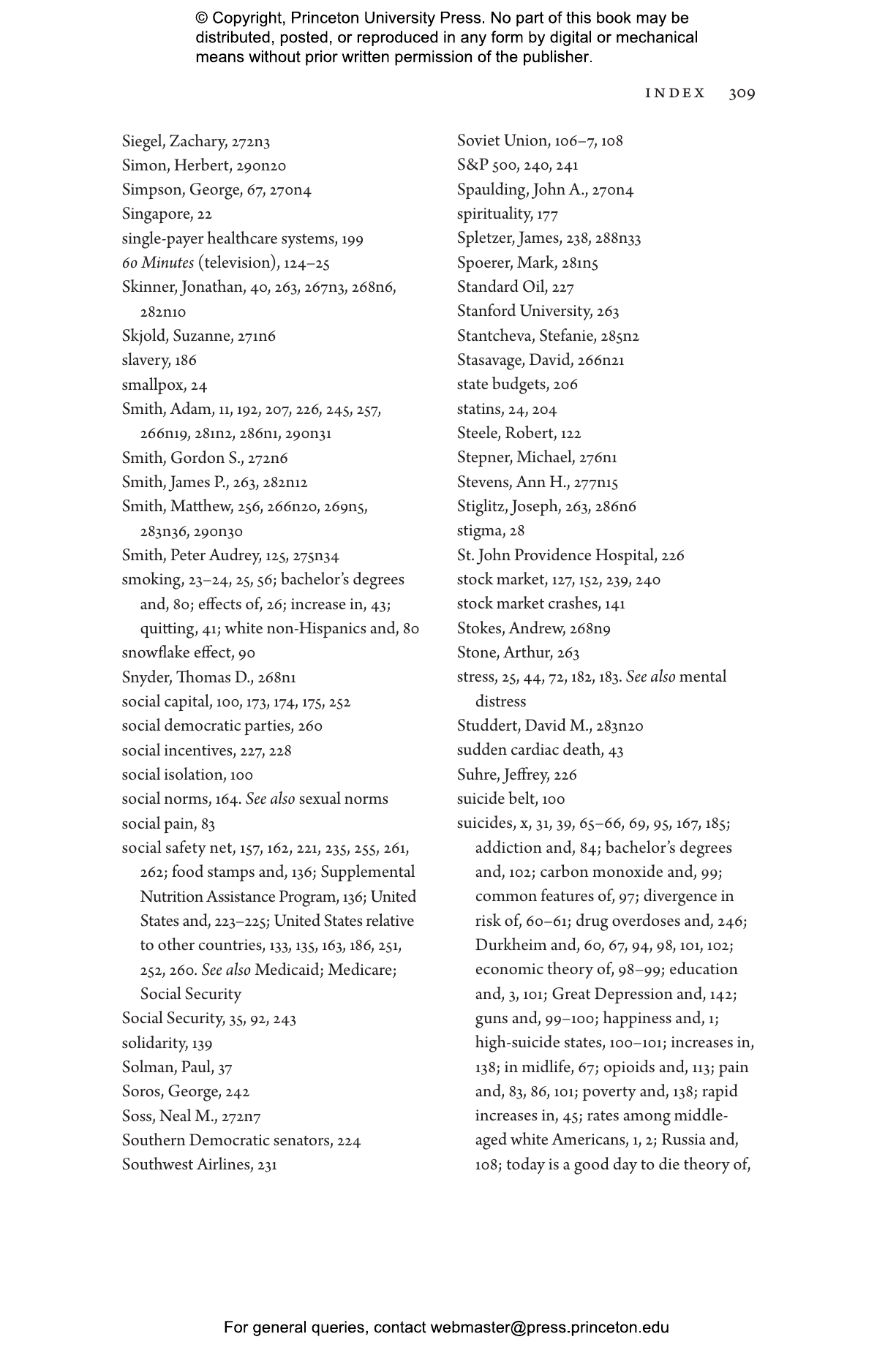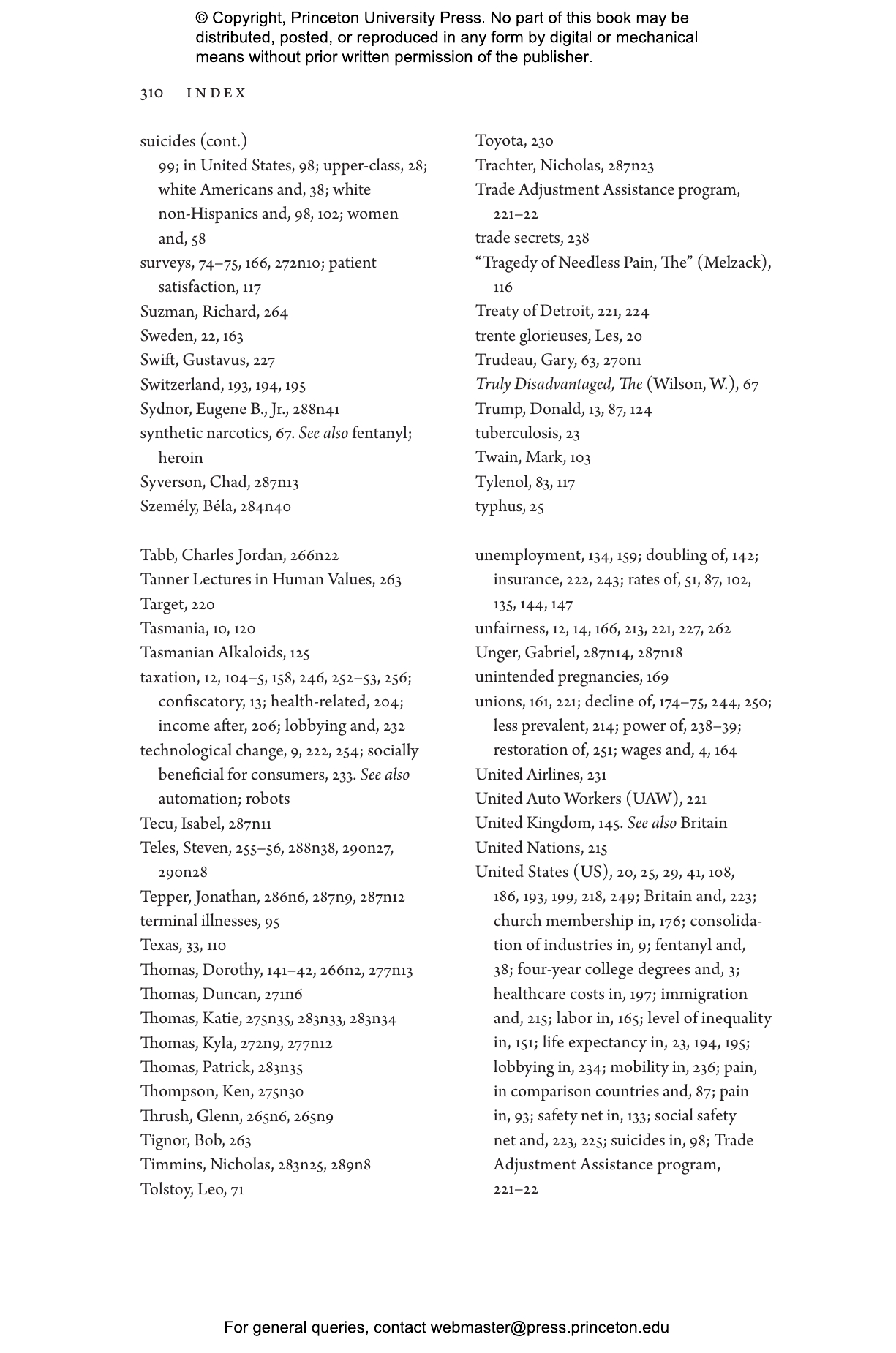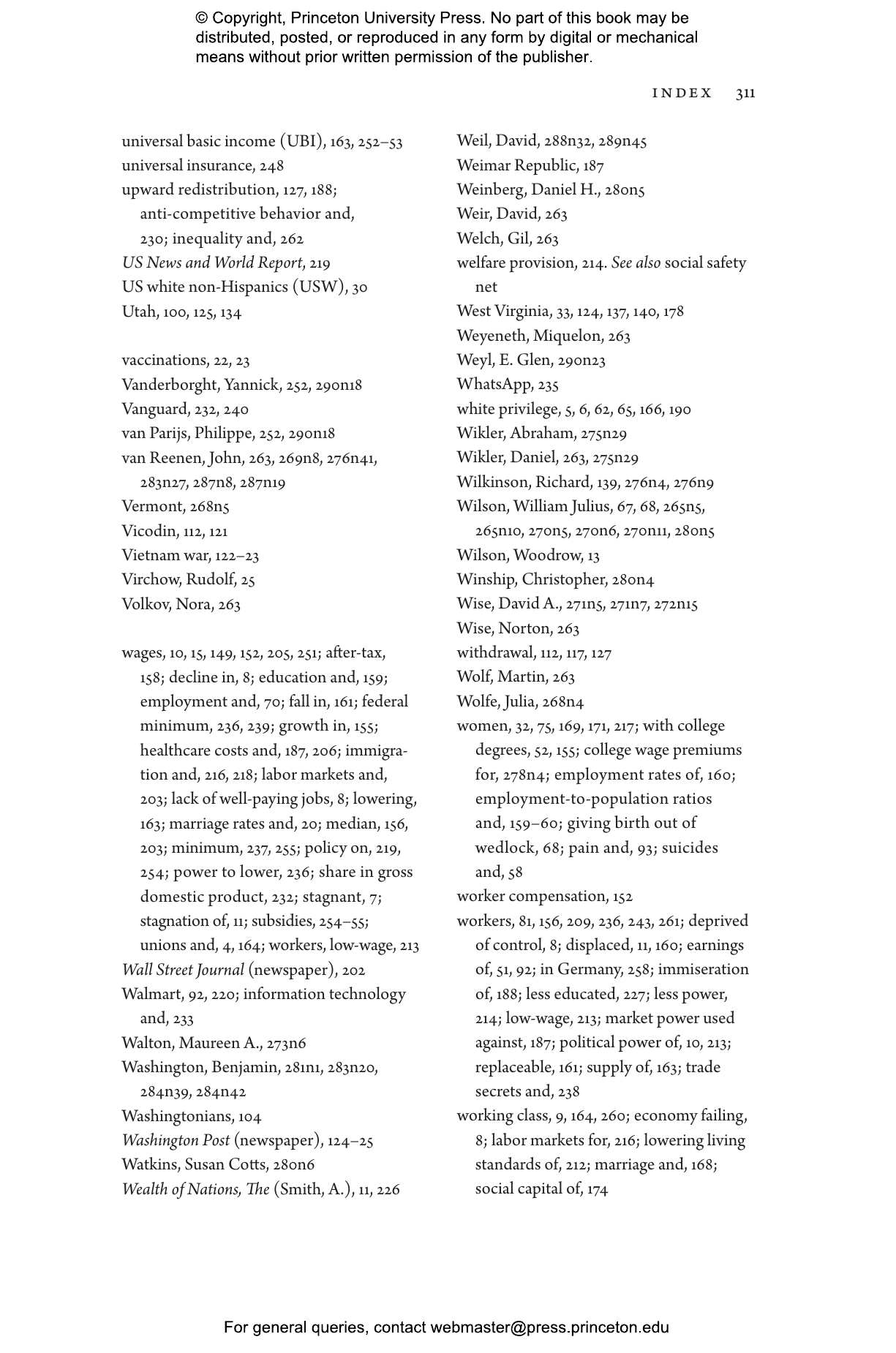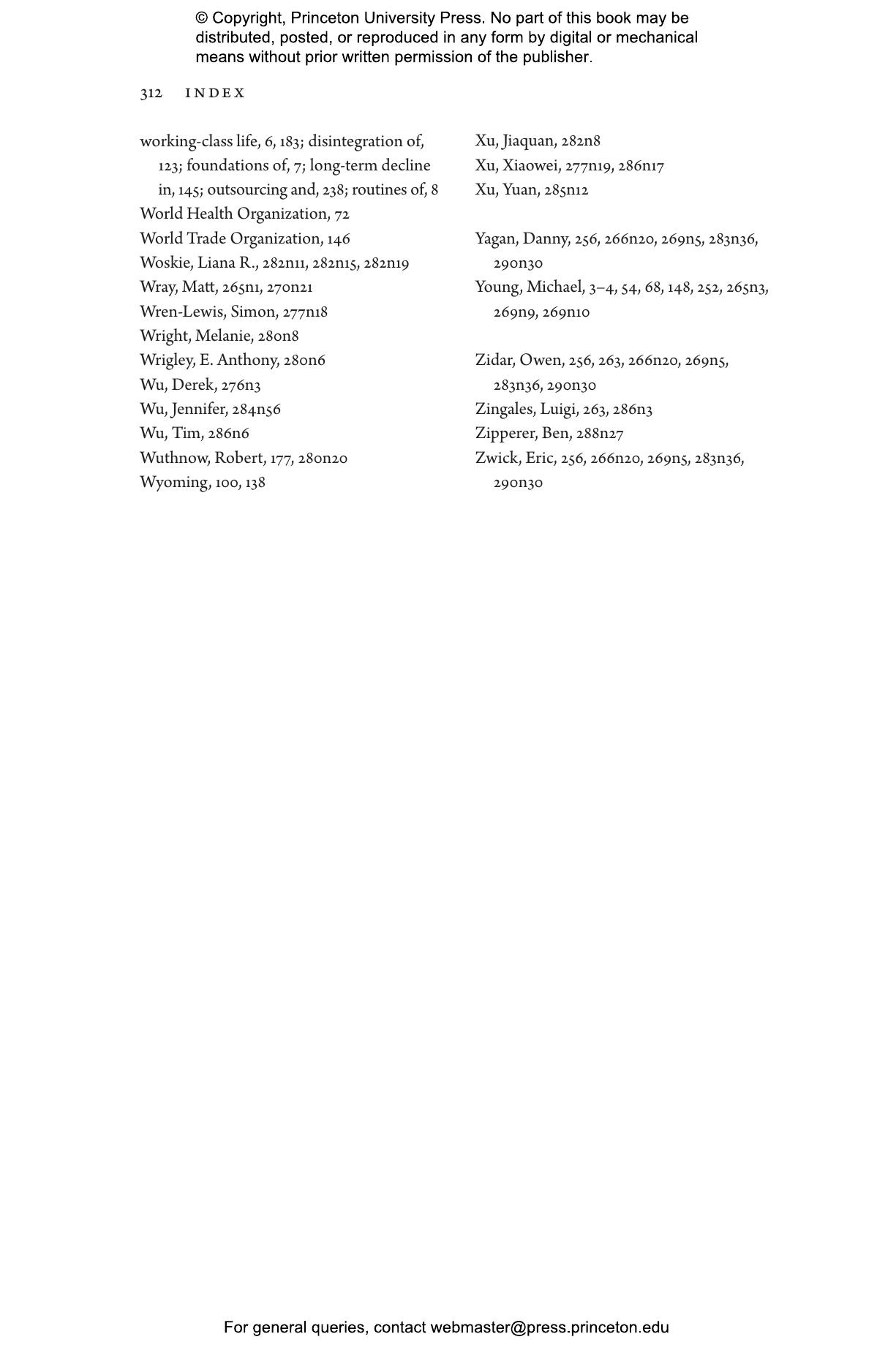"An excellent book."—Nicholas Kristof, New York Times
"This book is of the highest importance."—Martin Wolf, Financial Times
"Deaths of Despair is on a short list of the most important books of the 21st century for what is going on in our country."—David Leonhardt, New York Times columnist
"We Americans are reluctant to acknowledge that our economy serves the educated classes and penalizes the rest. But that’s exactly the situation, and Deaths of Despair shows how the immiseration of the less educated has resulted in the loss of hundreds of thousands of lives, even as the economy has thrived and the stock market has soared."—Atul Gawande, New Yorker
"A highly important book."—Arlie Russell Hochschild, New York Times Book Review
"This highly important book examines the pain and despair among white blue-collar workers and suggests that the hopelessness they are experiencing may eventually extend to the entire American work force."—New York Times Editors’ Choice
"Excellent."—Joyce Carol Oates on Twitter
"Gripping. . . . [Case and Deaton] do not merely rehearse decades of mortality and wage statistics. Rather, they seek to catalogue how an entire way of life first frayed and then fell apart over the past half-century, and the cruelty of an American meritocracy that heaps lavish rewards on the winners while increasingly leaving others to rot."—Joshua Chaffin, Financial Times
"A remarkable new book."—John Harris, The Guardian
"Disturbing. . . . . Case and Deaton do a great job making the case that something has gone grievously wrong."—Jim Zarroli, NPR
"I highly, highly recommend it."—Cardiff Garcia, NPR Planet Money’s The Indicator
"[A] remarkable and poignant book."—Dani Rodrik, Project Syndicate
"The system is broken and every bit of it needs fixing. This is a sobering – and essential – book."—Diane Coyle, Enlightened Economist
"Why economics really matters is illustrated in Deaths of Despair and the Future of Capitalism. . . . The authors argue that the capitalism that lifted countless people out of poverty is now destroying blue-collar America. They have solutions to make it work for all. They had better be right."—New Scientist
"[Case and Deaton] dive into and weave the data through different demographic and clinical lenses — race, gender, age, social connectedness, work history, and the most important through-line: education. Thus Case and Deaton connect the dots, literally, in the many charts that explain what factors are driving the Deaths of Despair."—Jane Sarasohn-Kahn, Health Populi Blog
"The rise in premature deaths among working-class whites has become a national crisis, and the authors tie the problem to the weakening position of labor, the growing power of corporations, and to a health-care sector that redistributes working-class wages to the wealthy."—Publishers Weekly
"Although the authors completed this book before the onset of the coronavirus pandemic — it was published four days after President Trump declared a national emergency — their diagnosis is still painfully relevant."—Carlos Lozada, Washington Post
"Timely and important."—Ed Balls, Financial Times
"Refreshing . . . a careful, deep, and troubling look at the America that lies beyond the Ivy League."—James K. Galbraith, Project Syndicate
"Case and Deaton explain how every detail of this crisis unfolded, examining recent historical events and rightly placing much of the blame on the United States’ distinctive strain of capitalism, designed to protect and grow the assets of the wealthy few."—Keri Leigh Merrit, Common Dreams
"Anne Case and Angus Deaton are senior economists at Princeton with expertise in public health and poverty, respectively. The combination, plus clear writing and ample doses of caution and open-mindedness, makes Deaths of Despair a compelling book."—Edward Hadas, Reuters BreakingViews
"The policies that the authors advocate not only would address deaths of despair, they would improve the health and welfare of the American people more generally."—David Canning, Science
"[a] hard-hitting study of US capitalism."—Andrew Robinson, Nature
"The authors add an important dimension to the growing body of research on the suffering of African Americans in the US; but their main argument is that it is the uneducated white working class that is now in “long-term and slowly unfolding” freefall."—Anne Nelson, Times Literary Supplement
"Complementing their candid prose with enlightening charts and graphs, Case and Deaton make the scale and immediacy of the problem crystal clear. This is an essential portrait of America in crisis."—Publishers Weekly
"Deaths of Despair is designed to shine a light on a generational catastrophe that could—perhaps will—become a multigenerational disaster. It does this with chilling precision."—Mike Jakeman, Strategy+Business
"Through simple figures and clear prose, it presents a huge bodyof evidence from the Centers for Disease Control and Prevention’s WONDER database and other sources that the arc of the white working class’s fate over the last two decades is long, but it bends toward nihilism and an early grave."—Gabriel Rossman, Washington Examiner
"Elaborately explained and well-presented. . . . Case and Deaton’s well-written and gloomy book was meant as a warning. Relentlessly fighting an infectious disease, the U.S. government seems to have treated it as a handbook."—Joakim Book, American Institute for Economic Research
"Well-researched, compassionate."—Susan Babbitt, New York Journal of Books
"Simply put, this is a terrific book. I suspect it will be on many people’s top 10 book lists of 2020. Although written before COVID-19, the book’s critique of the US approach to health care and inequality is remarkably prescient. In many ways, the opioid crisis Case and Deaton analyze is a microcosm of the anguish the world is experiencing today, and we would be remiss not to pay attention to their insights."—Kenneth Rogoff, Finance & Development
"A must-read for anyone attempting to objectively understand our collective American pain as well as those gaining from it."—Rahul Gupta, Democracy
"Important."—Michael Tomasky, Democracy
"The best account of [the] White collapse."—David Ignatius, Washington Post
"Well researched and incisive. . . . This is a tragic, but important book, and hopefully it helps to nudge the needle towards where badly needed social reforms need to go."—Simon Cocking, Irish Tech News
"Building on Case and Deaton’s extraordinarily influential research on the mortality resulting from the tragic opioid epidemic in the United States, this book examines three causes of death – drug overdose, suicide, and alcohol-related liver disease – that have risen rapidly since the mid-1990s. It is extraordinarily well written – sweeping yet succinct. And though it was published before the COVID-19 crisis, its critique of the US approach to health care and inequality is remarkably prescient."—Ken Rogoff, Project Syndicate
"I’ll offer my own endorsement from the [New York Times Notable] 100: Deaths of Despair and the Future of Capitalism, by Anne Case and Angus Deaton. It covers arguably the single most alarming development in American life, one that helps explain the frustration pulsing through the country: In many communities, people are not living as long as their parents did."—David Leonhardt, New York Times
"[A] well-argued, important book."—Rosamund Urwin, Sunday Times
"Case and Deaton’s extraordinary research in this book is an important warning of the consequences this might have for people’s health and wellbeing and family and community life."—Economic Annals, Jelena Žarković
"This book will be an instant classic, applying high quality social science to an urgent national matter of life and death. In exploring the recent epidemic of 'deaths of despair,' the distinguished authors uncover an absorbing historical story that raises basic questions about the future of capitalism. It is hard to imagine a timelier—or in the end, more hopeful—book in this season of our national despair."—Robert D. Putnam, author of Bowling Alone and Our Kids
"In the face of a government that failed to protect ordinary working-class Americans from the greed-fueled opioid epidemic and a media that was slow to notice the problem, Anne Case and Angus Deaton are true sentinels. Deaths of Despair and the Future of Capitalism is an urgent and clarion call to rethink pain, inequality, justice, and the business of being human in America. This book explains America to itself. I underlined damn near every sentence."—Beth Macy, author of Dopesick: Dealers, Doctors, and the Drug Company That Addicted America
"In this superb book, Case and Deaton connect the dots to explain the dramatic rise of deaths of despair among working-class white Americans. Totally unexpectedly, they trace the root cause to an exorbitantly expensive health-care system that sucks—and wastes—billions of dollars and so much human talent away from improving lives."—Ezekiel J. Emanuel, University of Pennsylvania
"With stunning data analysis, close observation, and smoldering urgency, Case and Deaton show why mounting deaths of despair are not only a public health disaster but also an indictment of the metastasizing stratification that is undermining working-class America."—David Autor, Massachusetts Institute of Technology
"This book explains so many of today's headlines with clear writing, sharp storytelling, and an almost symphonic use of research in economics, public health, and history. What it summons is a powerful analysis of who we are as Americans and what we have become as a country."—Sam Quinones, author of Dreamland: The True Tale of America's Opiate Epidemic
"America is experiencing a catastrophe. Those without a college degree are not just being left behind; they are dying from deaths of despair. Case and Deaton brilliantly describe and dissect the causes and explain how we can return to a path of rising prosperity and health. All citizens—voters as well as politicians aspiring to office—should read and discuss this book."—Mervyn King, former governor of the Bank of England
"Deaths of despair among US whites with low education cannot be attributed to lack of access to health care or ignorance of healthy lifestyles. When two leading economists turn their attention to the social determinants of this modern epidemic, the result is brilliant."—Sir Michael G. Marmot, author of The Health Gap
